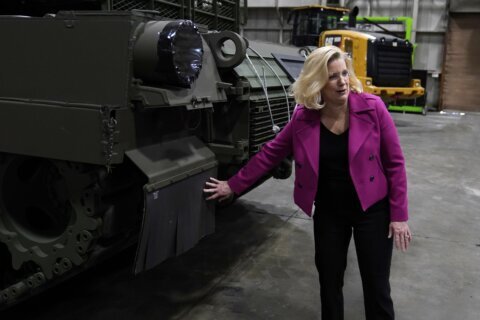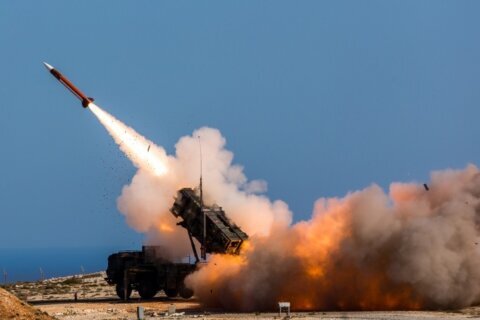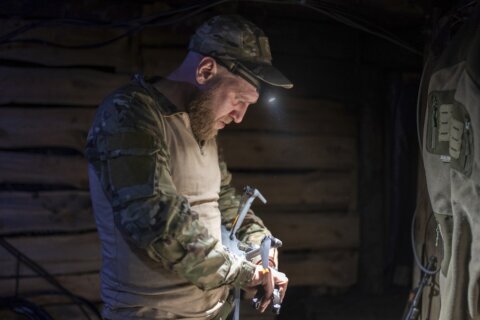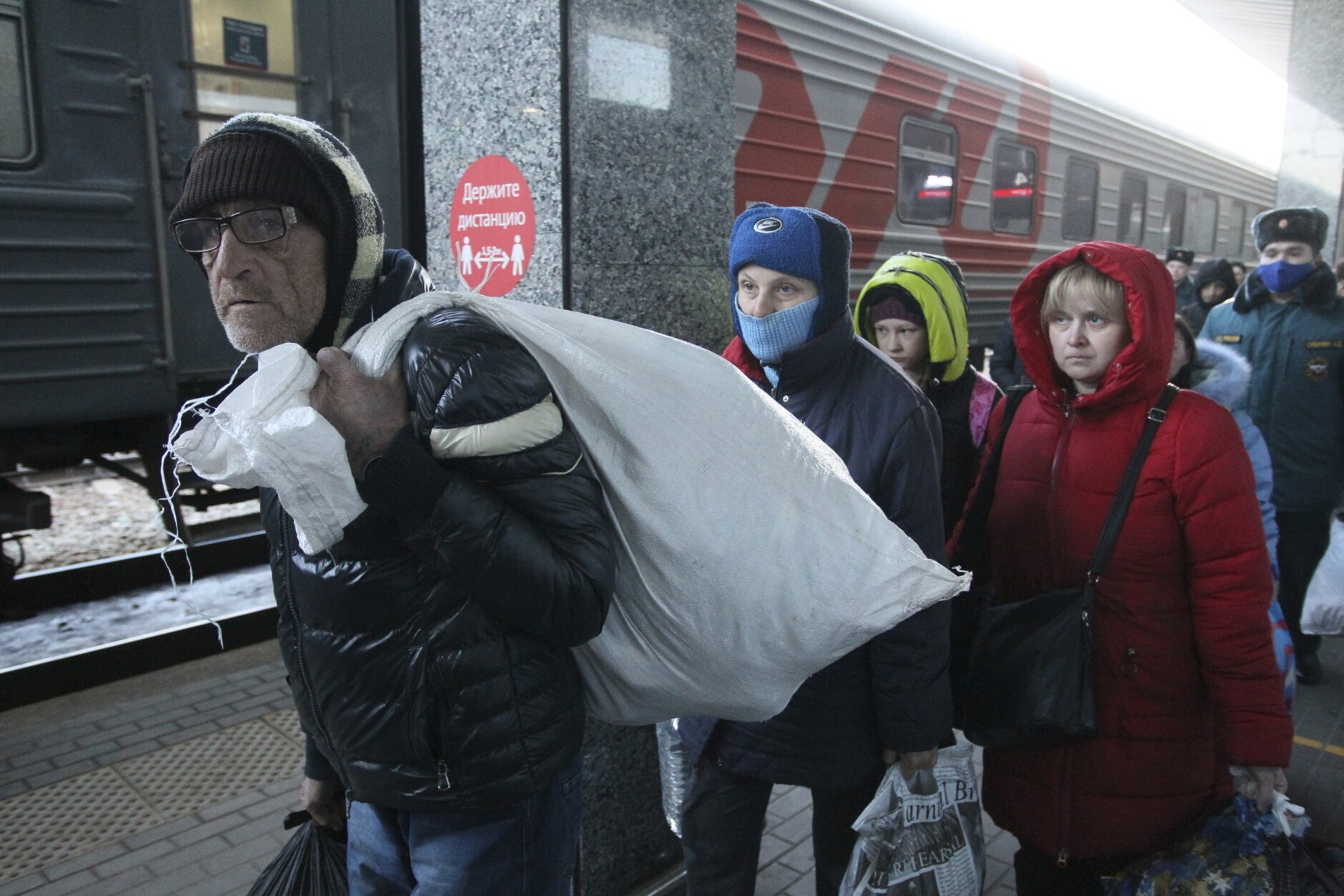
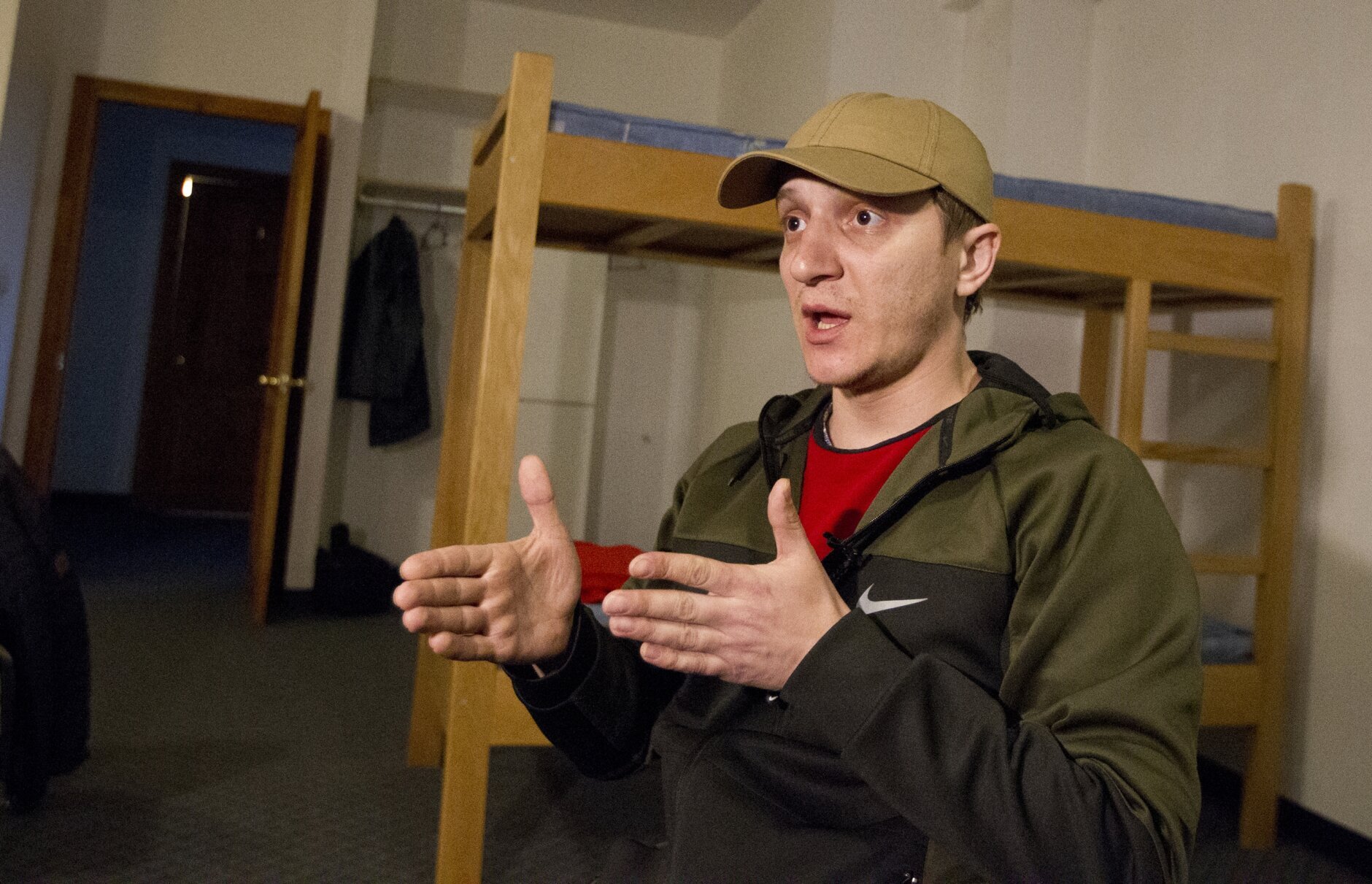
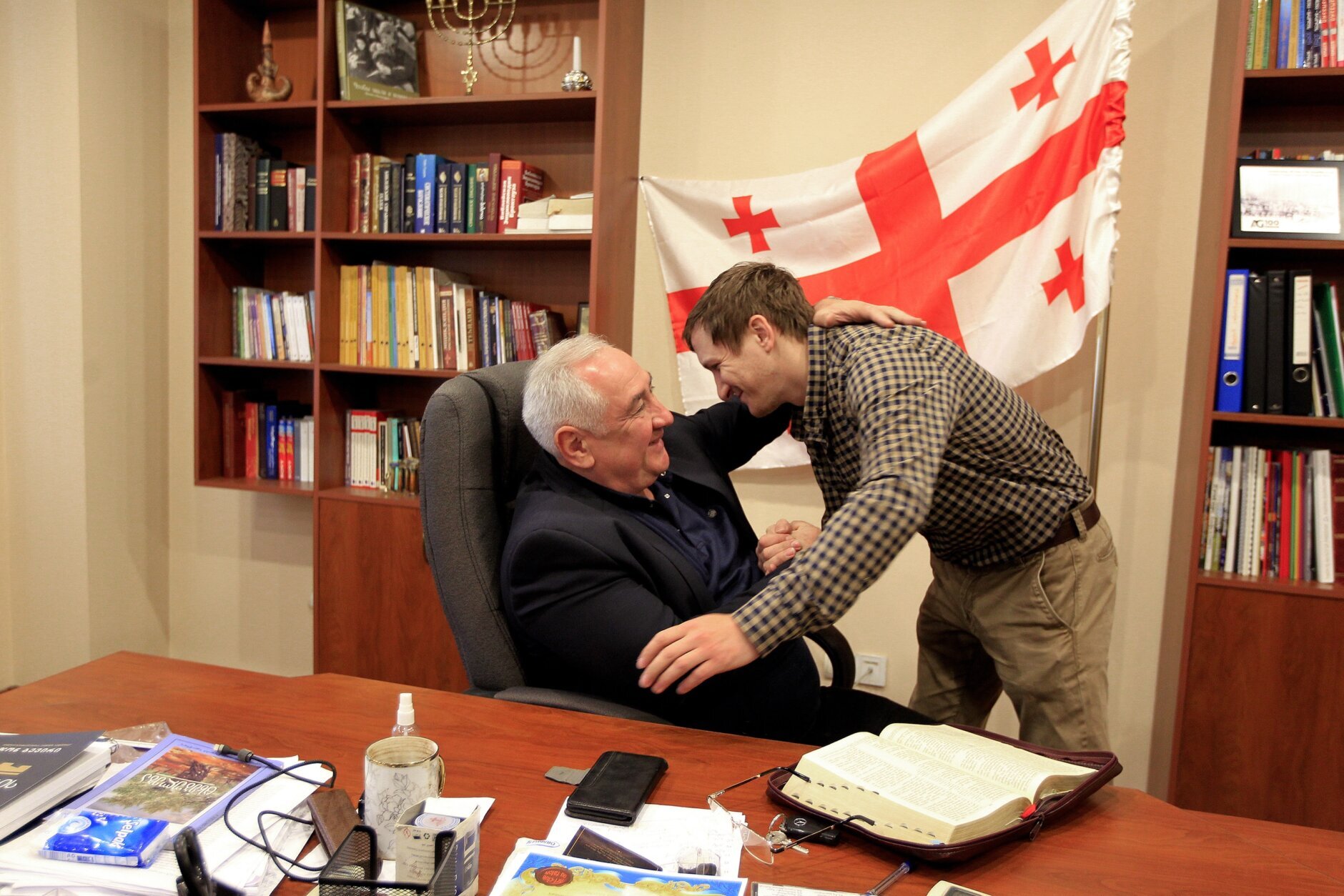
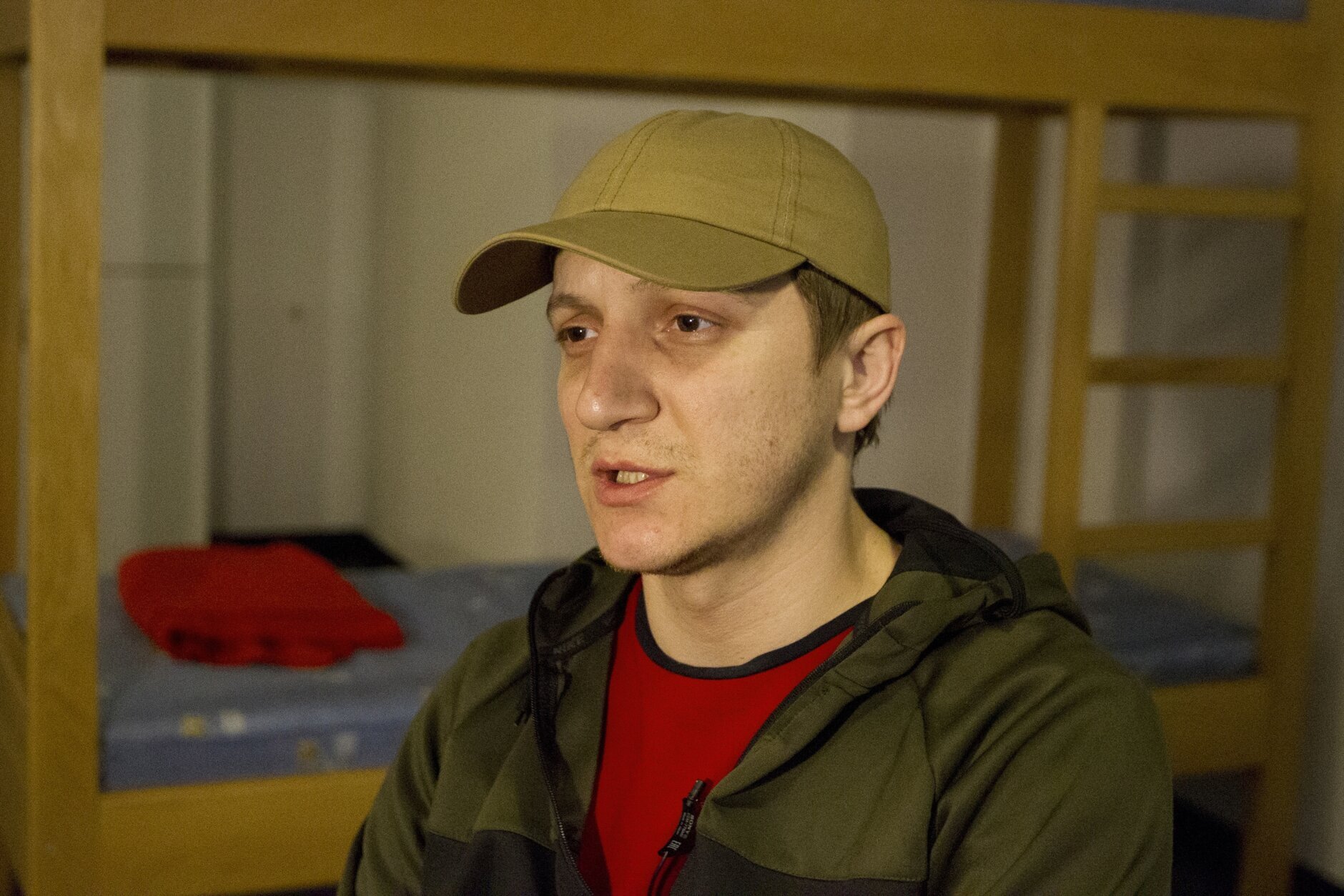
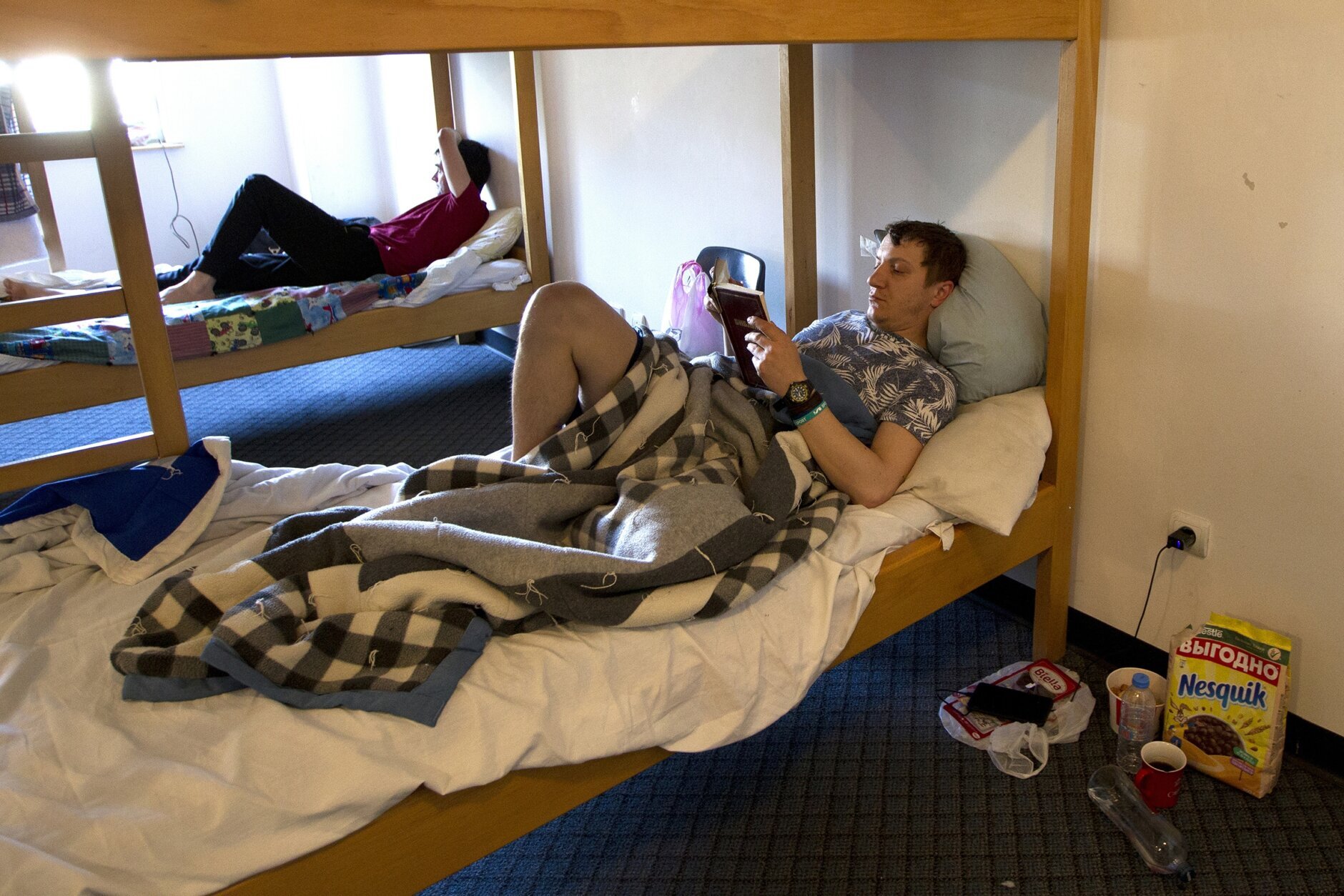
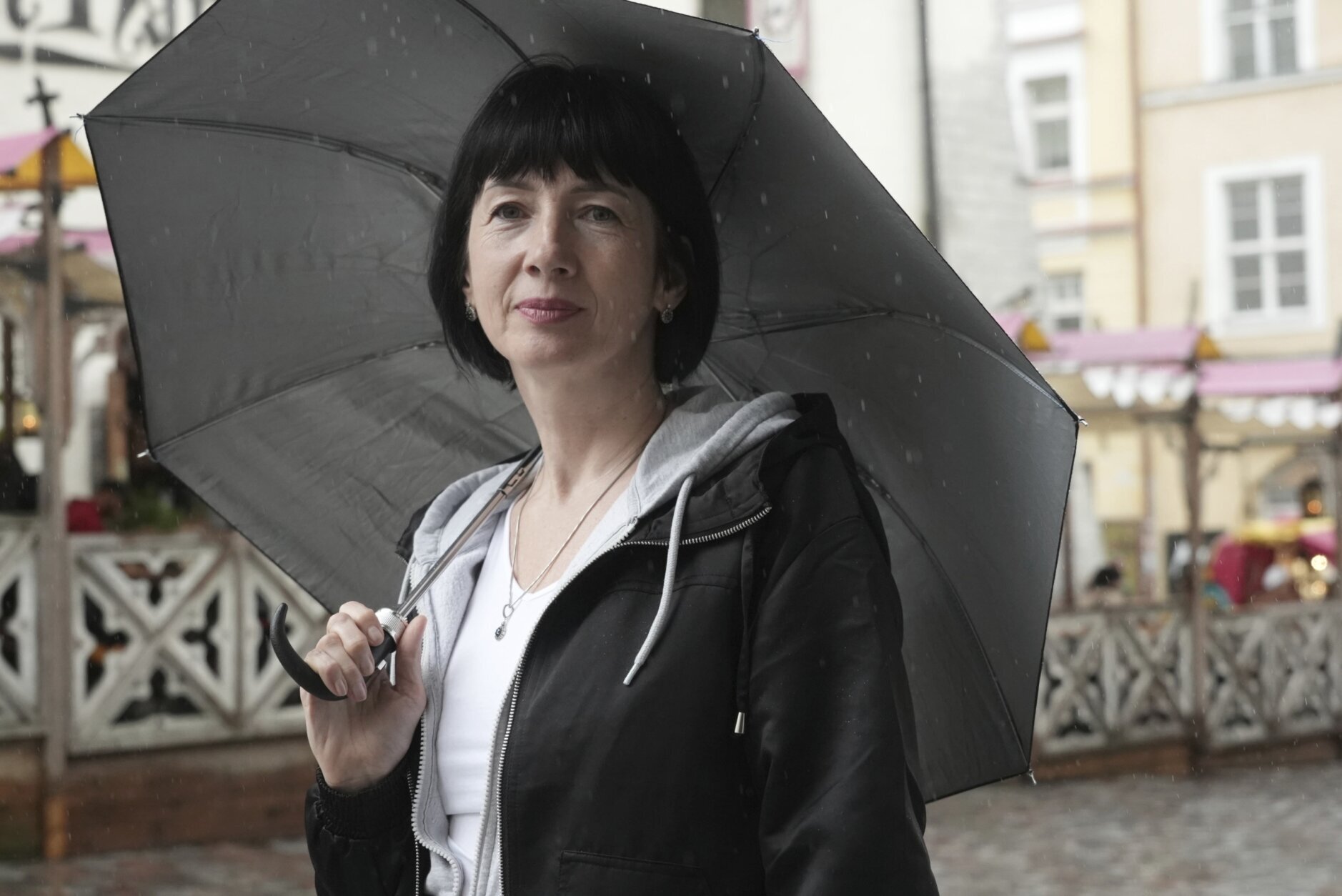
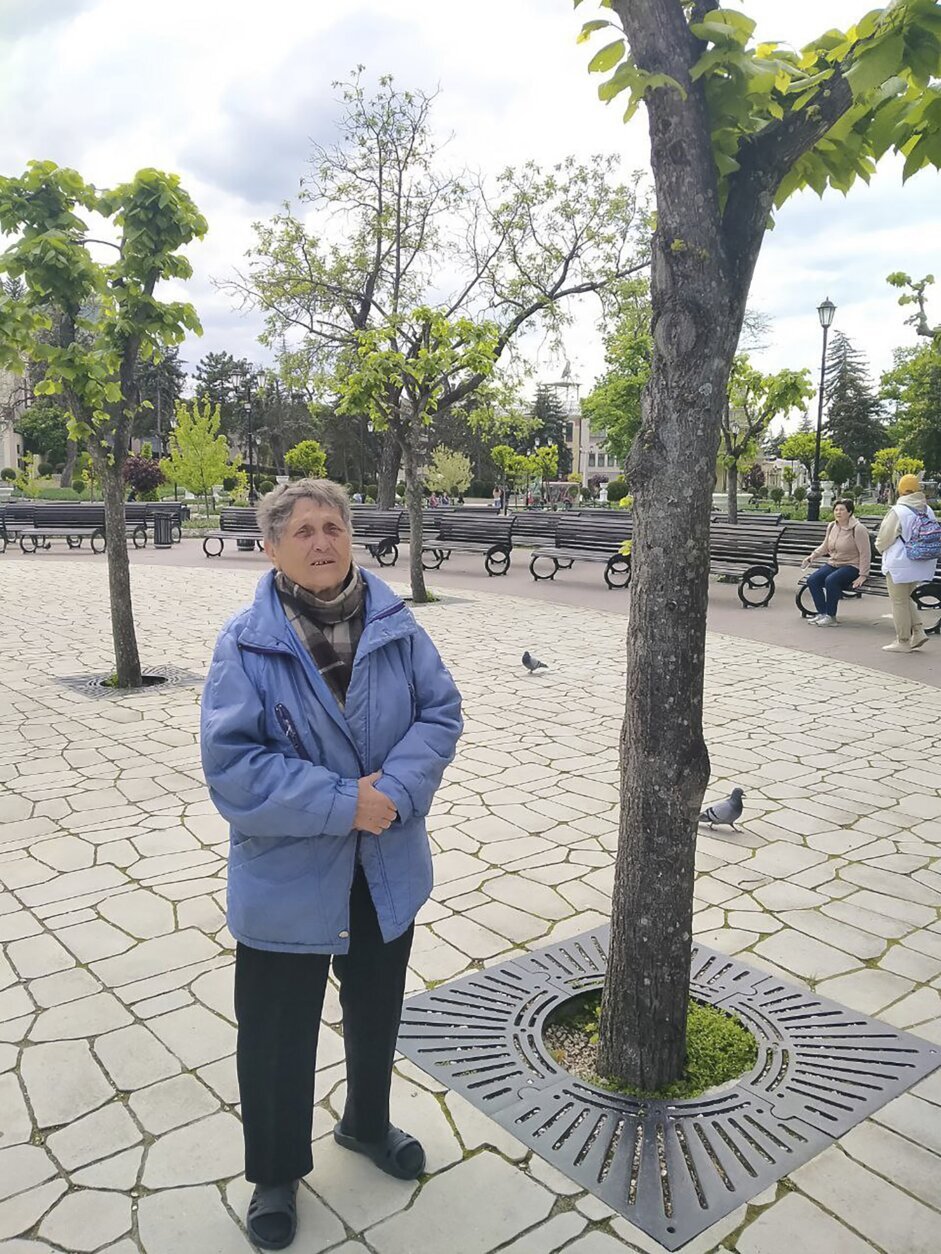
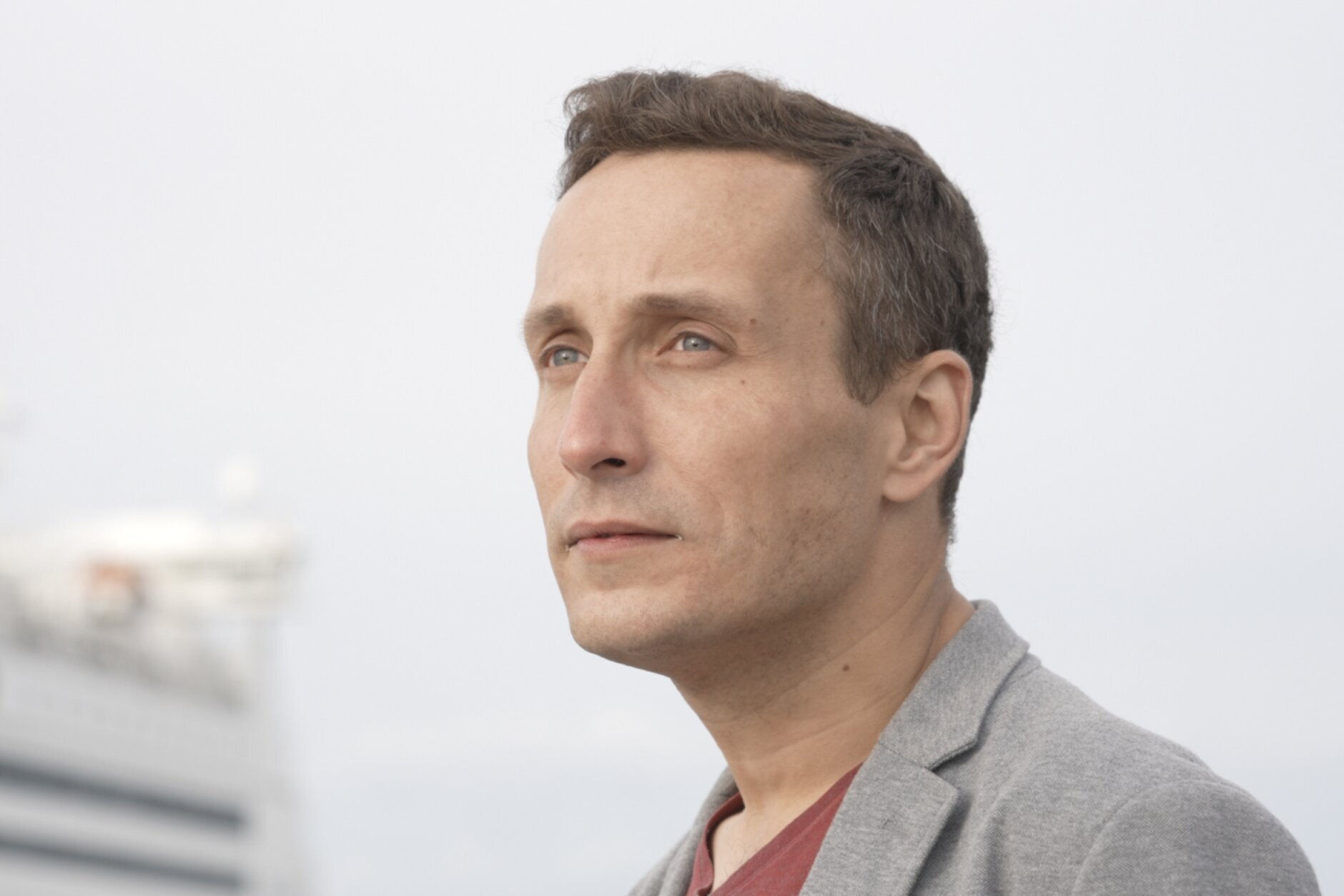
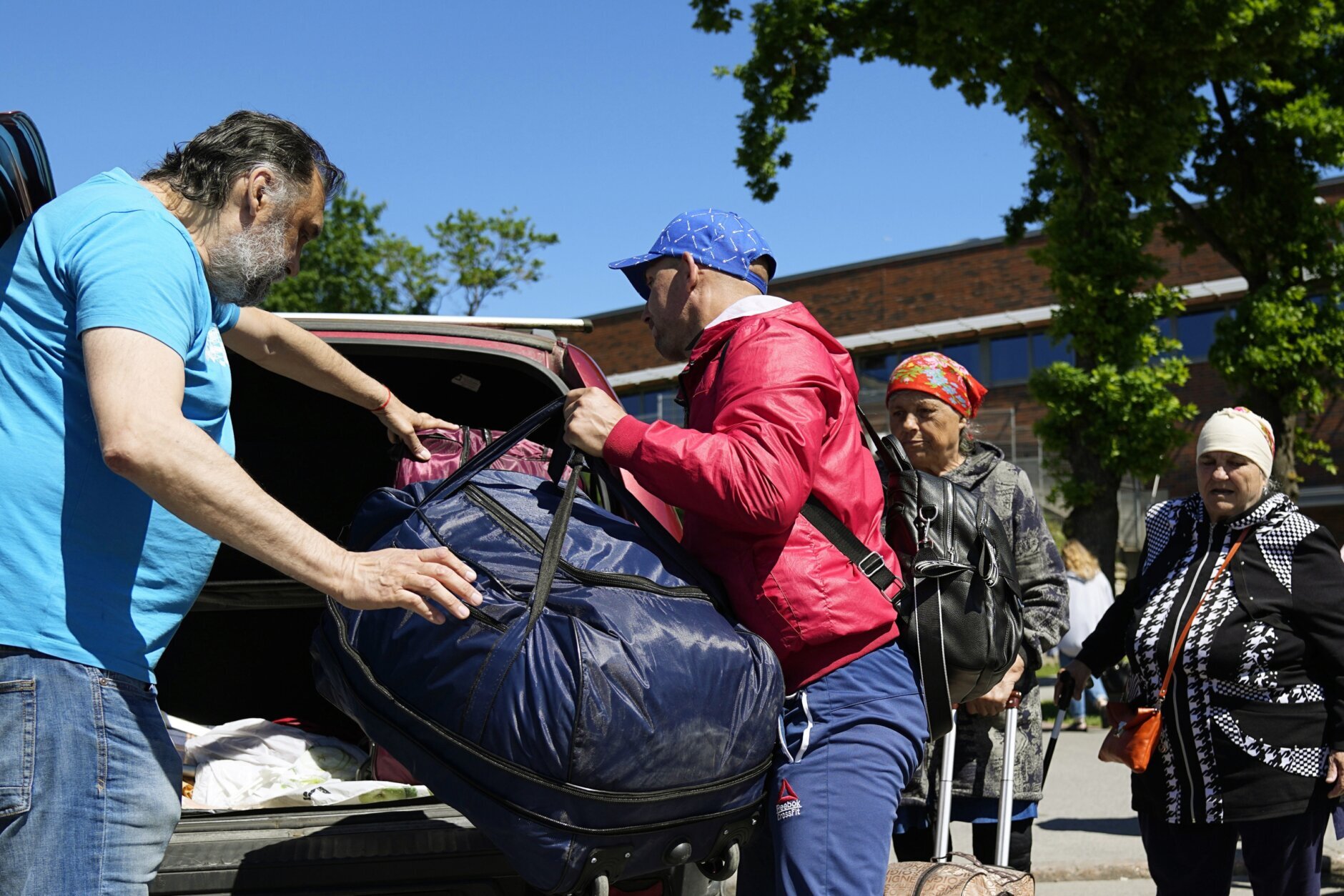
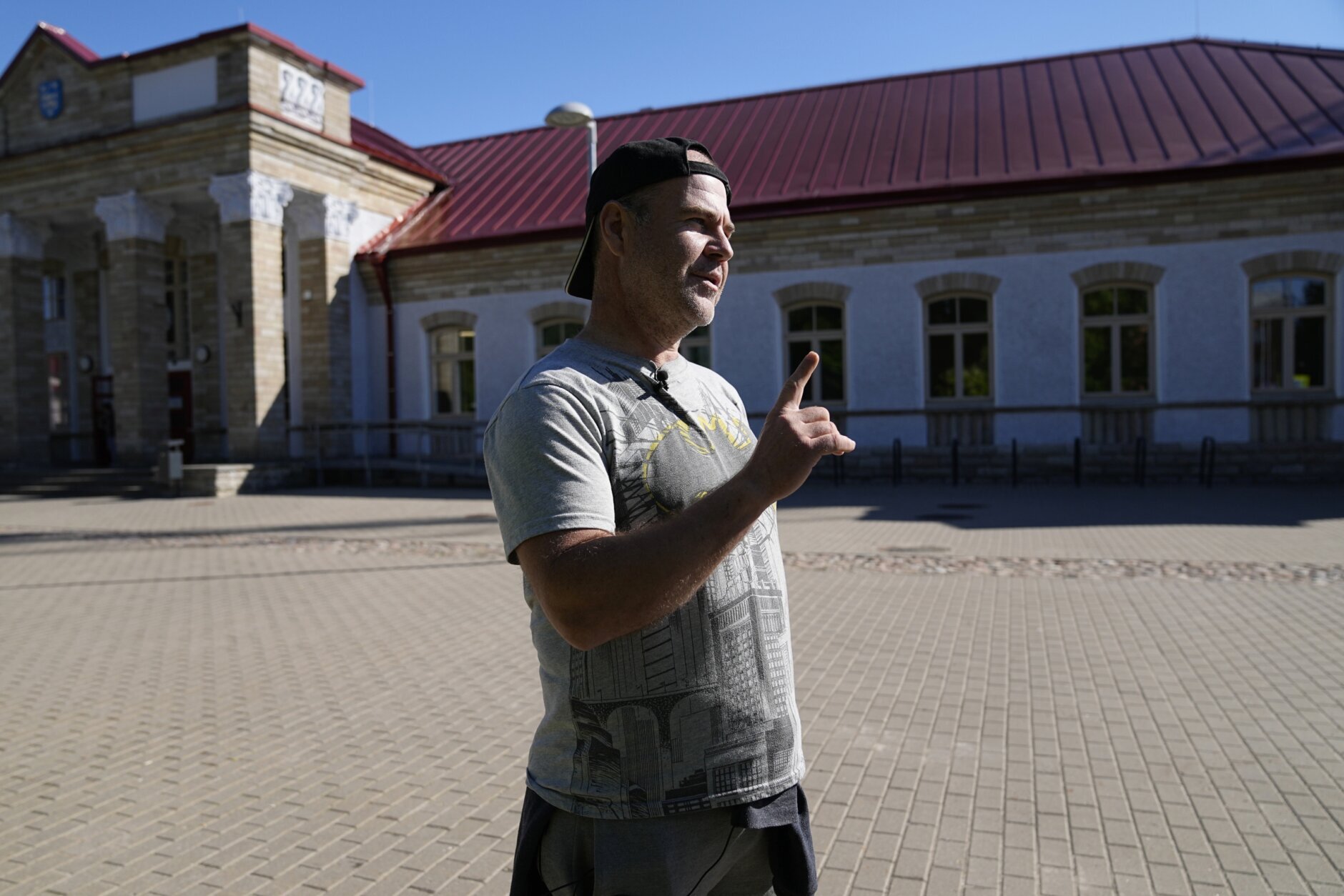
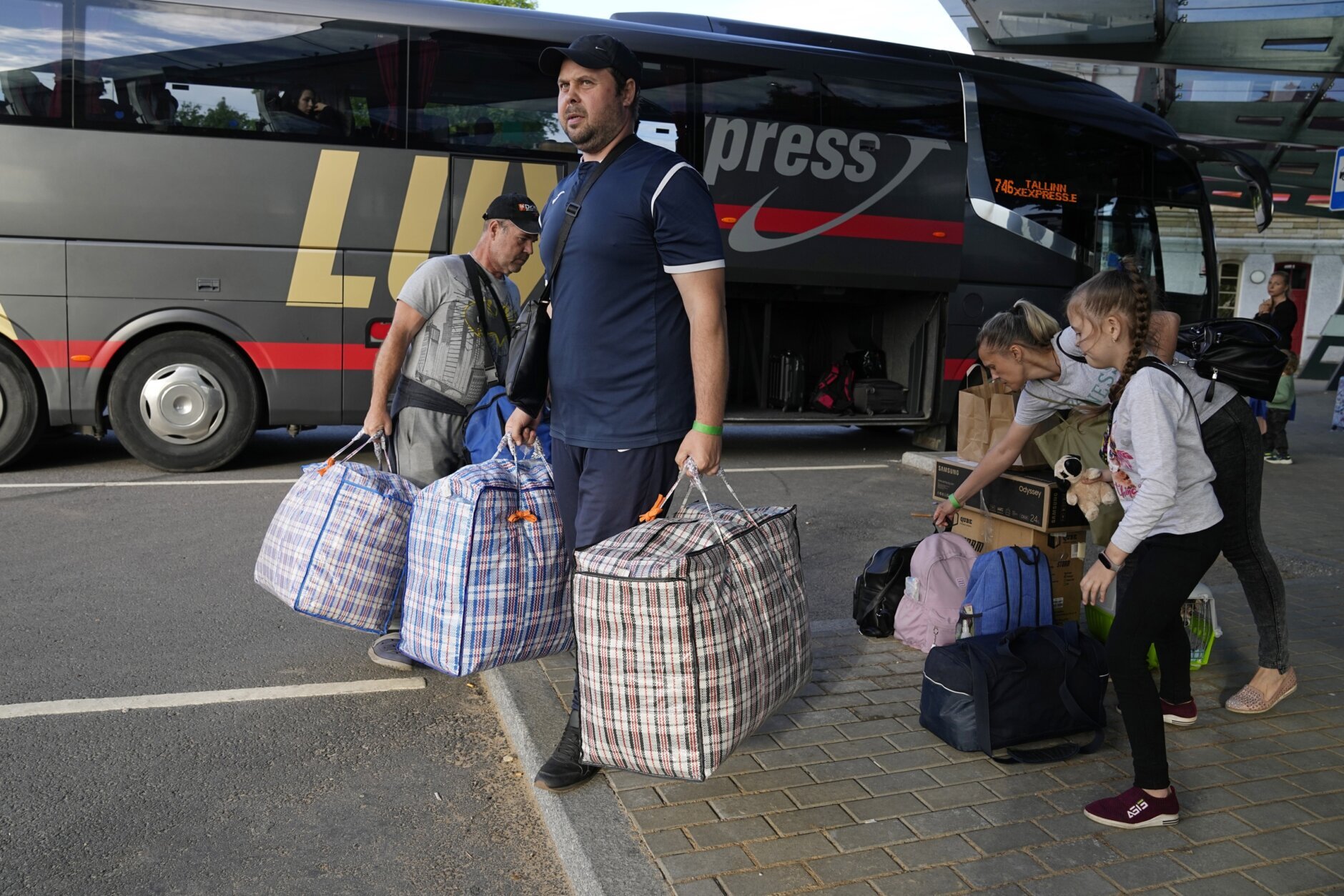
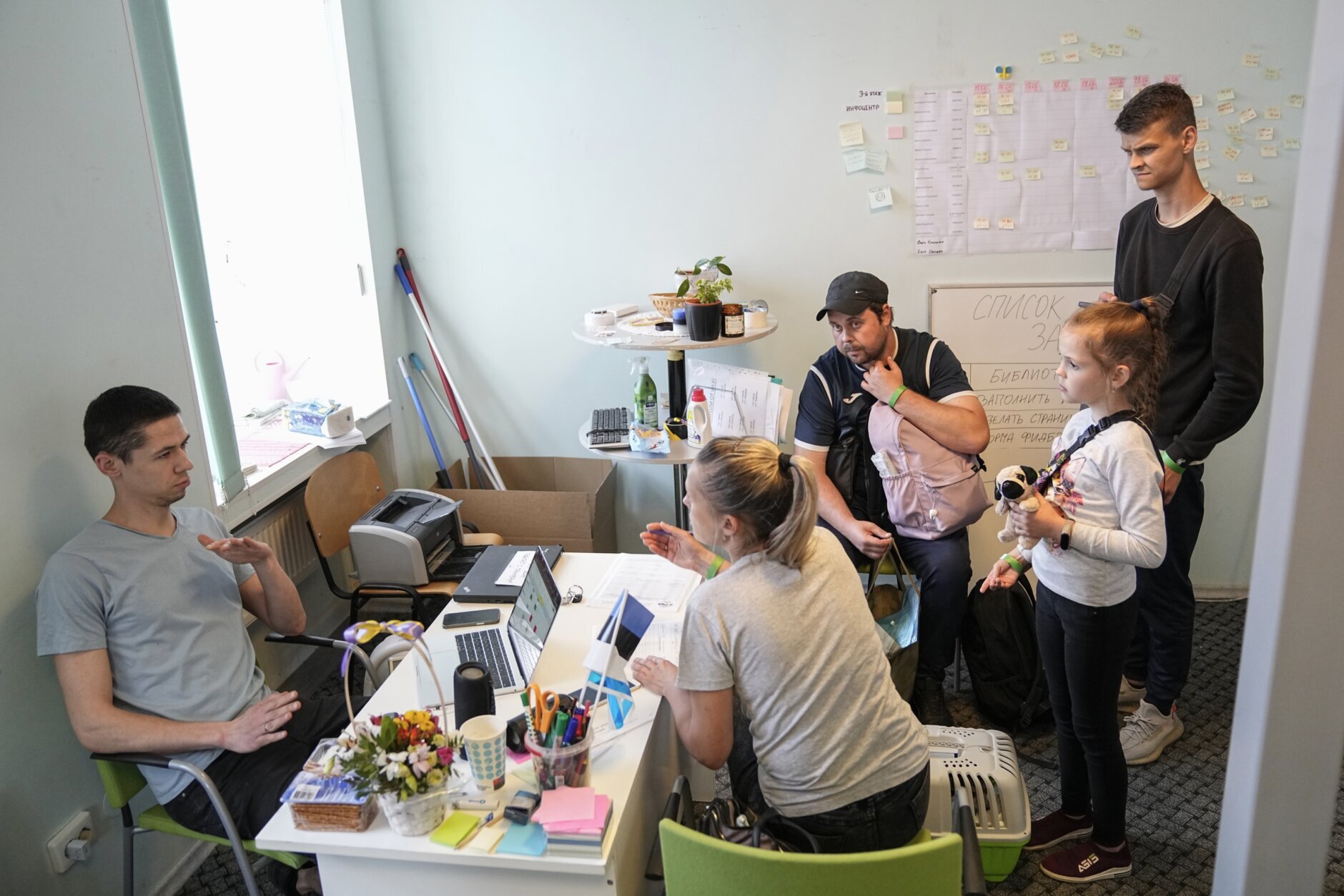
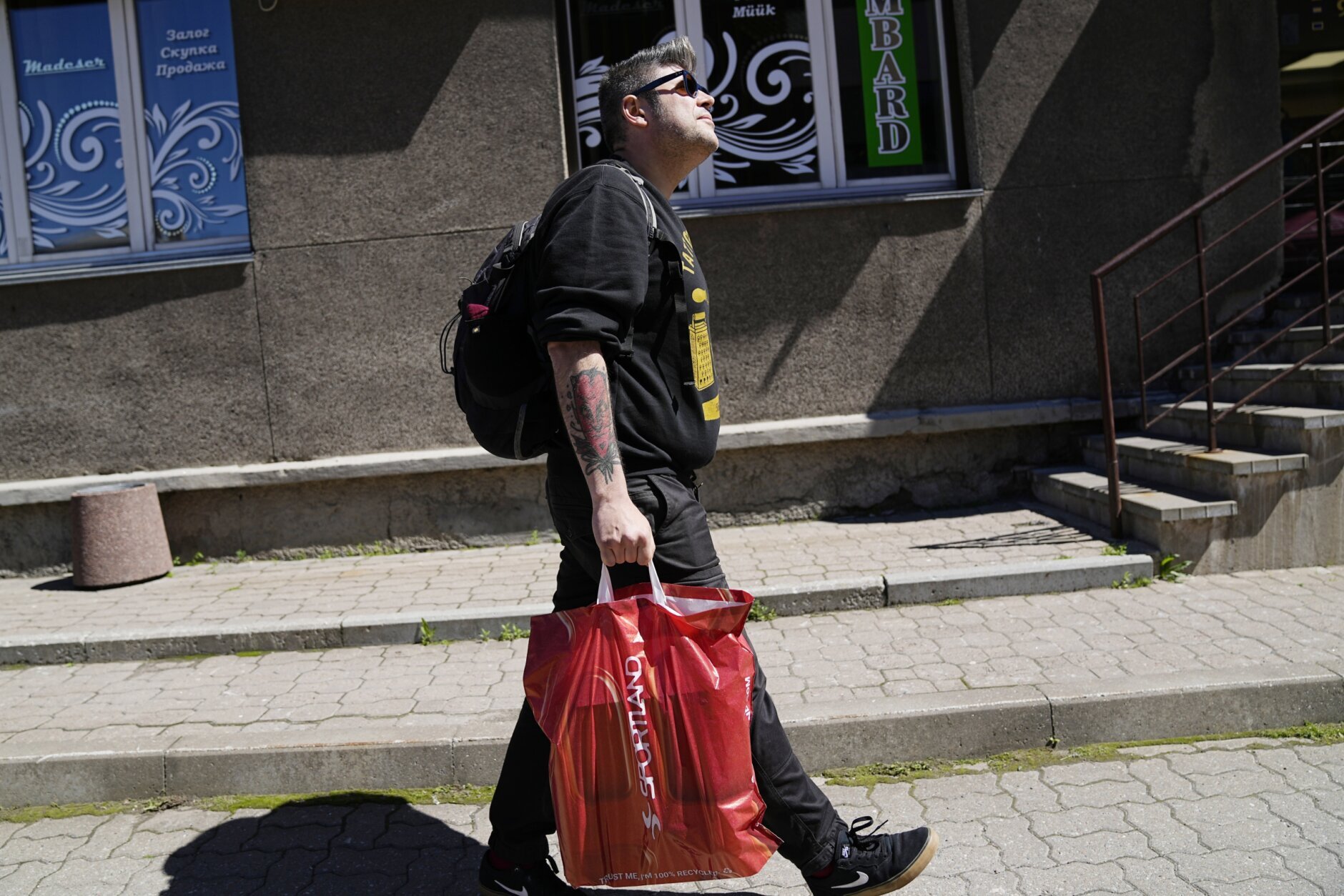
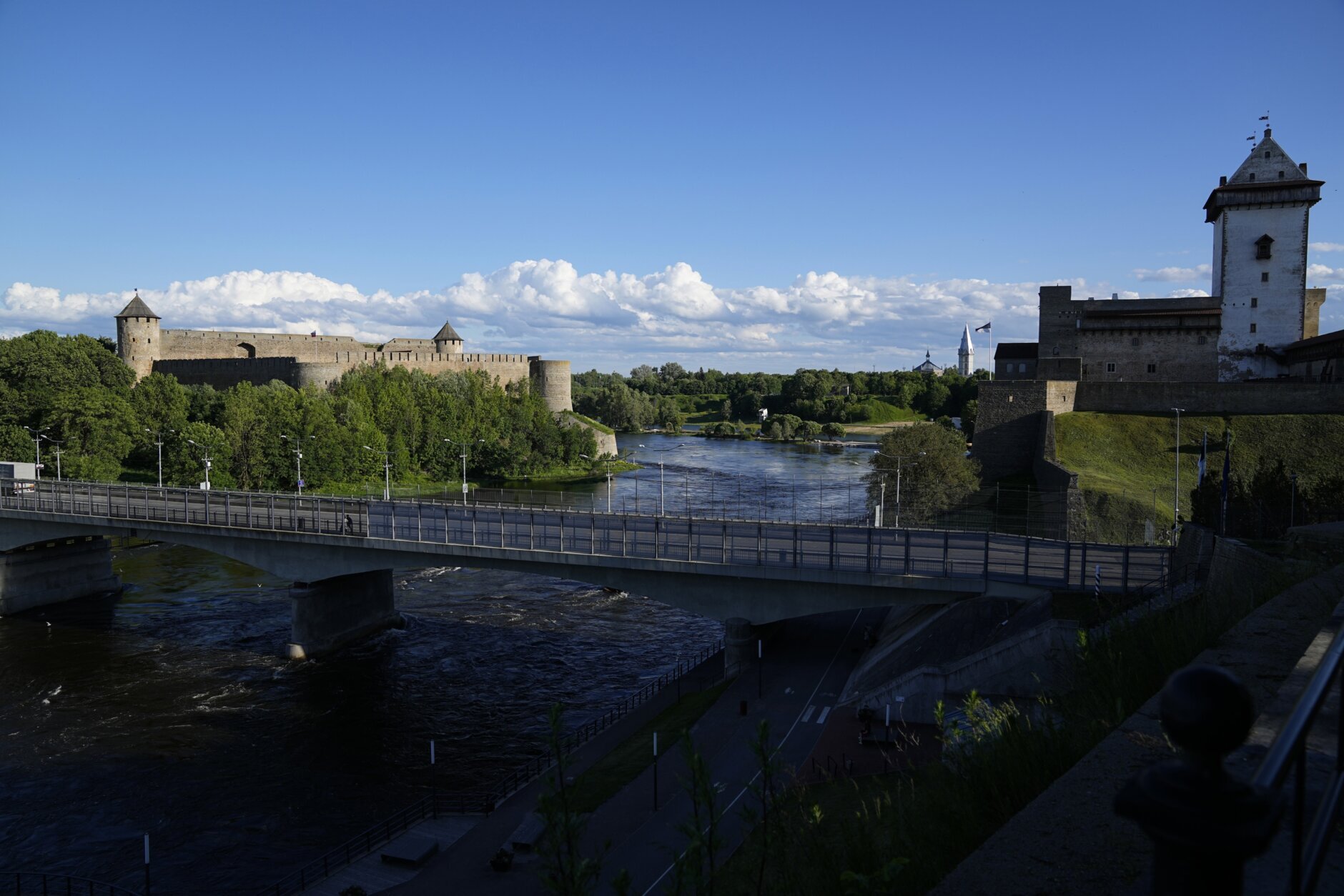
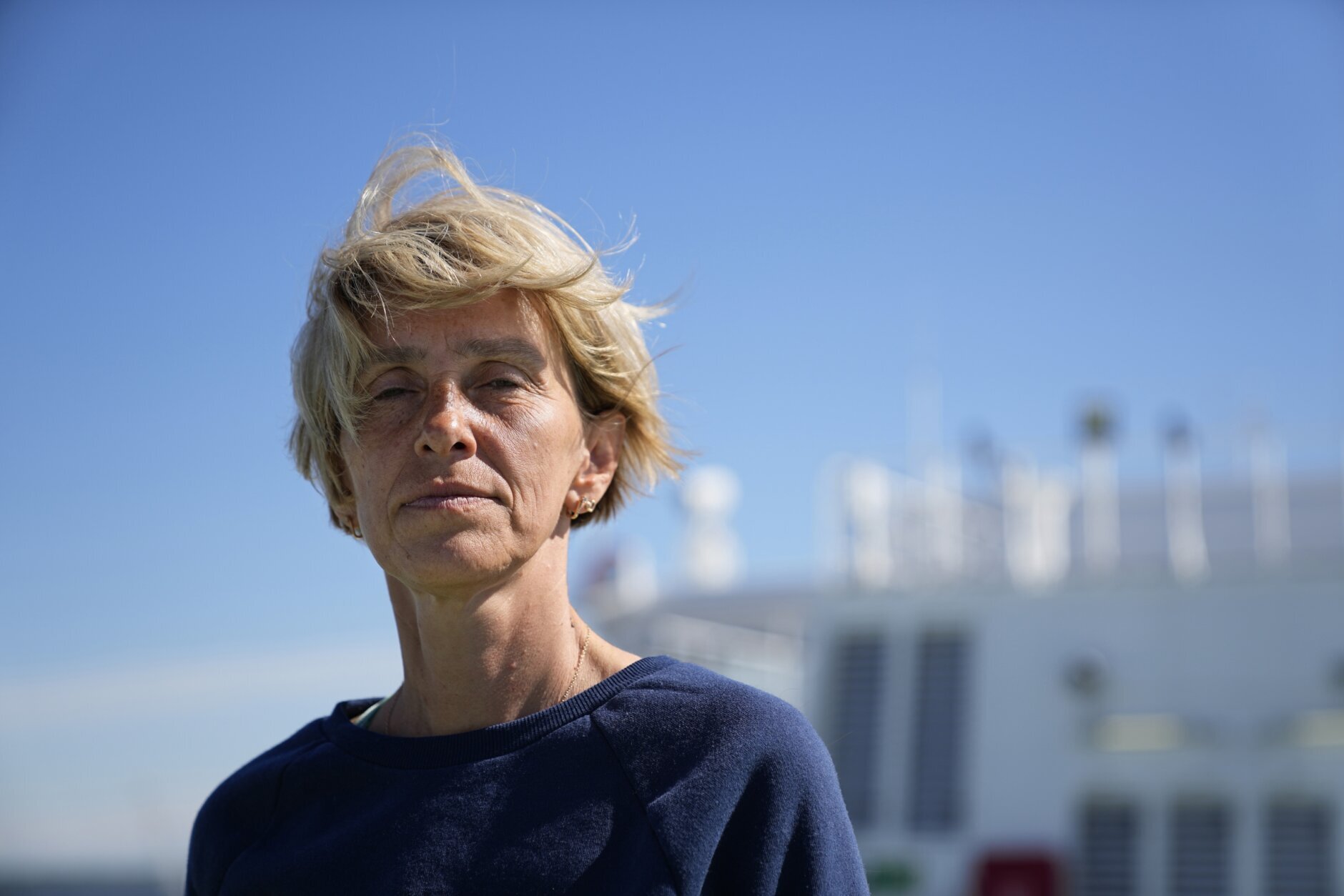
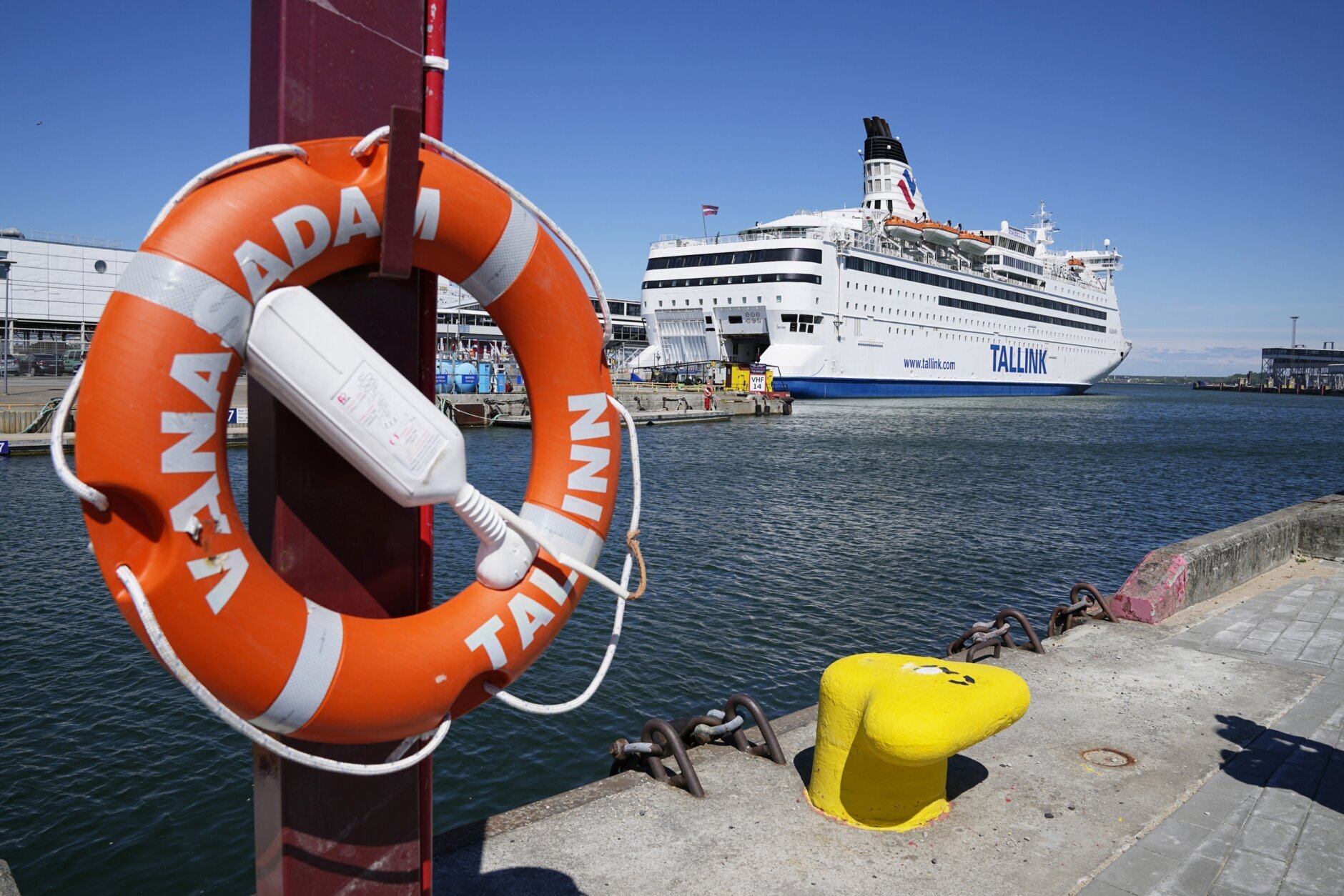
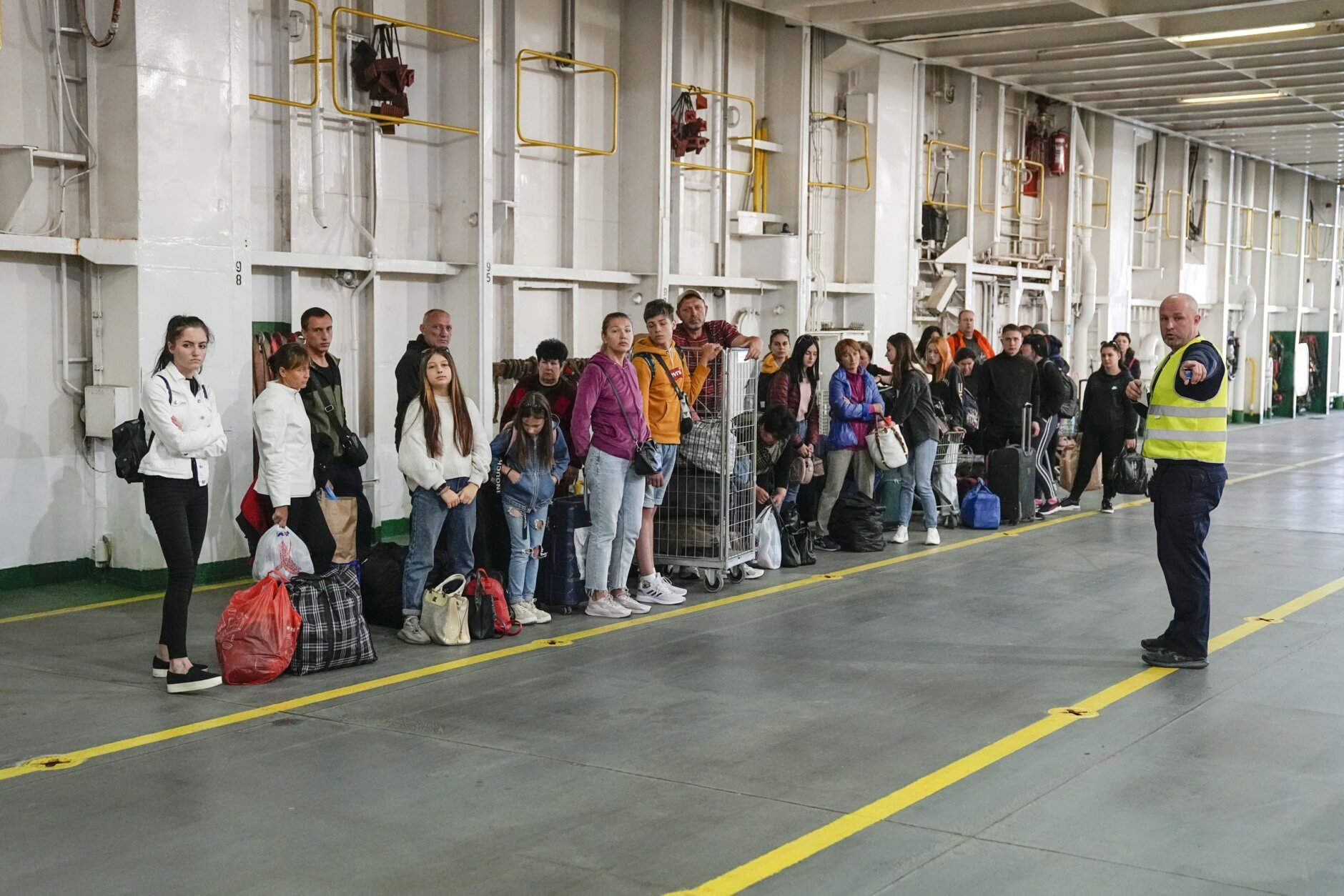
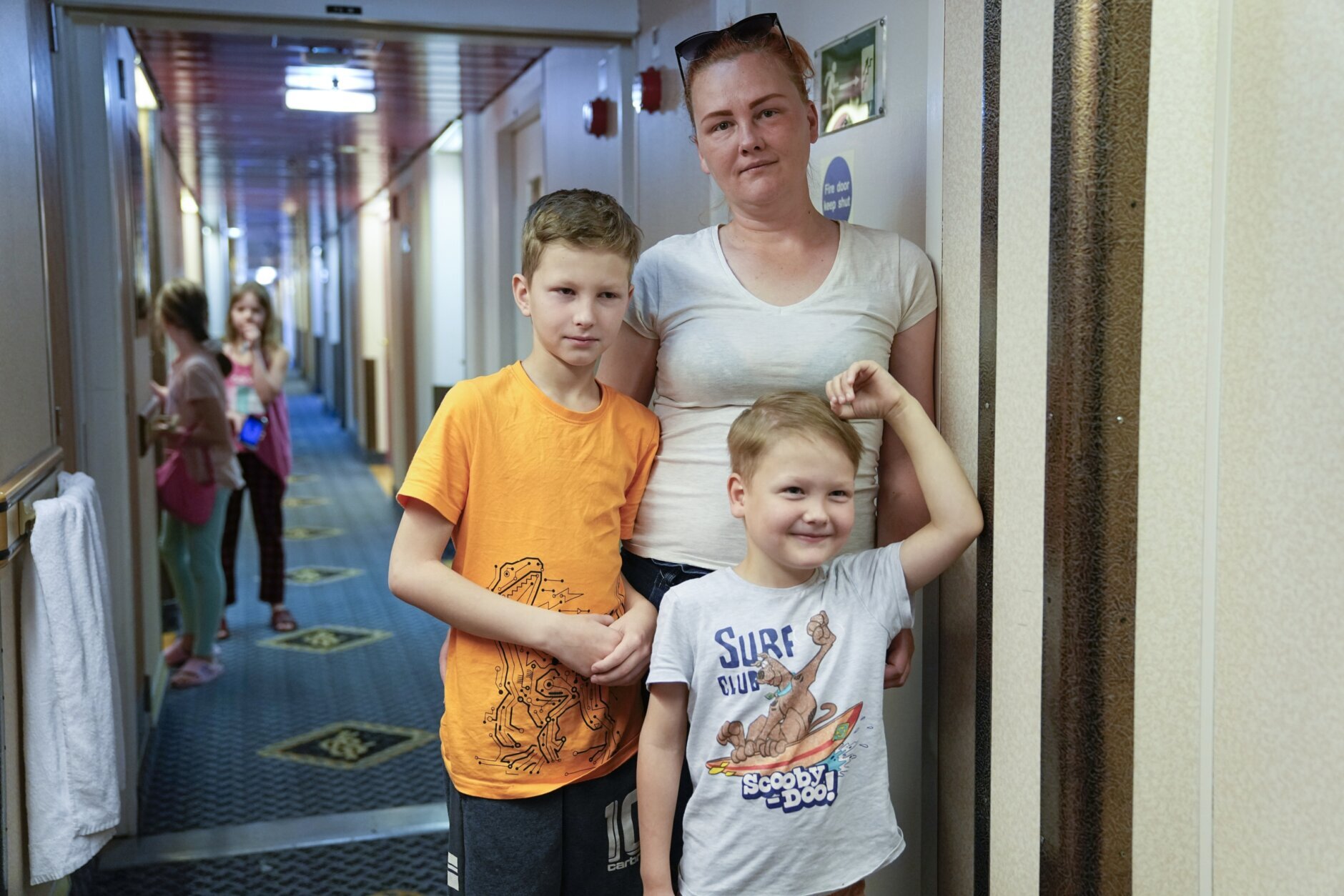
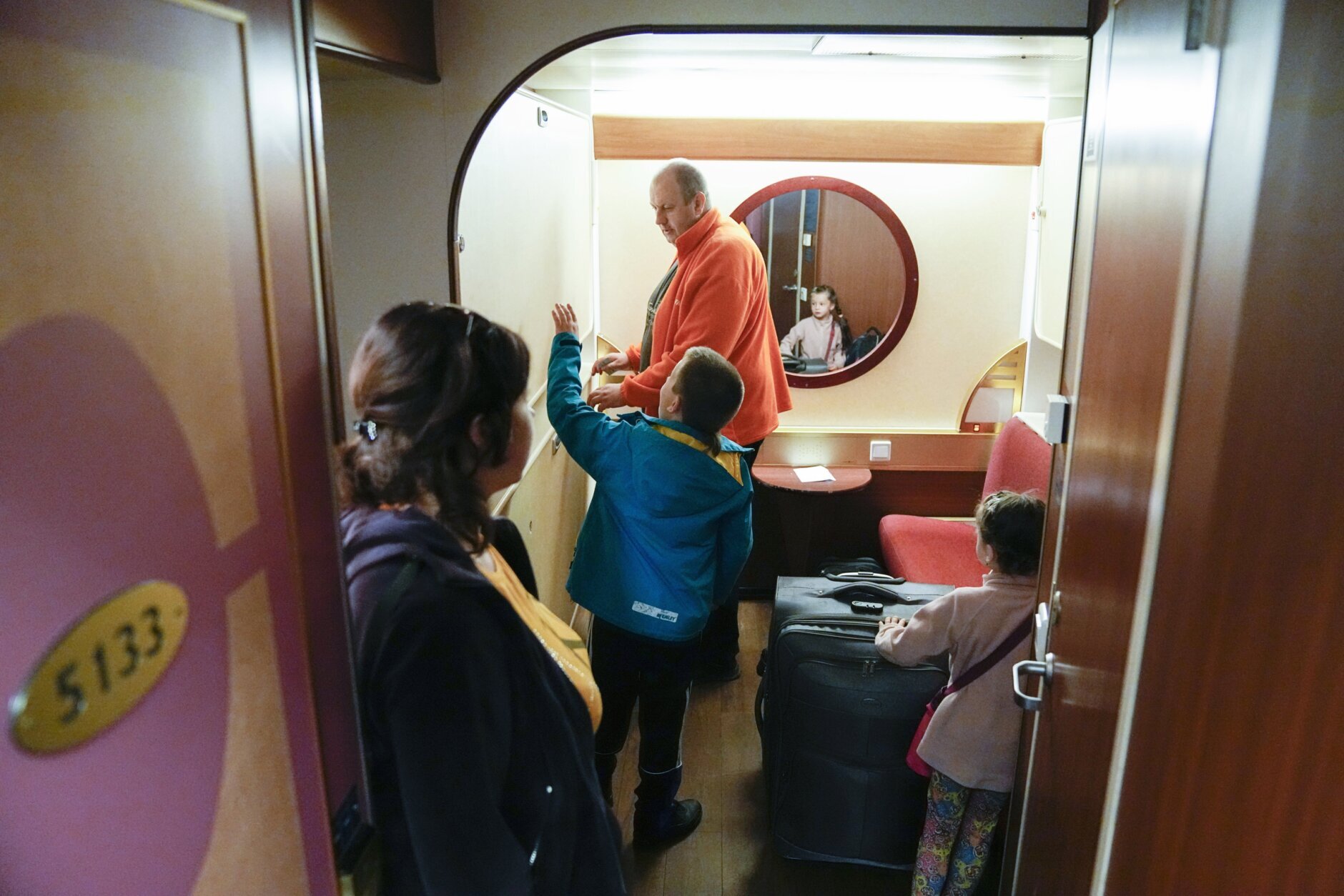
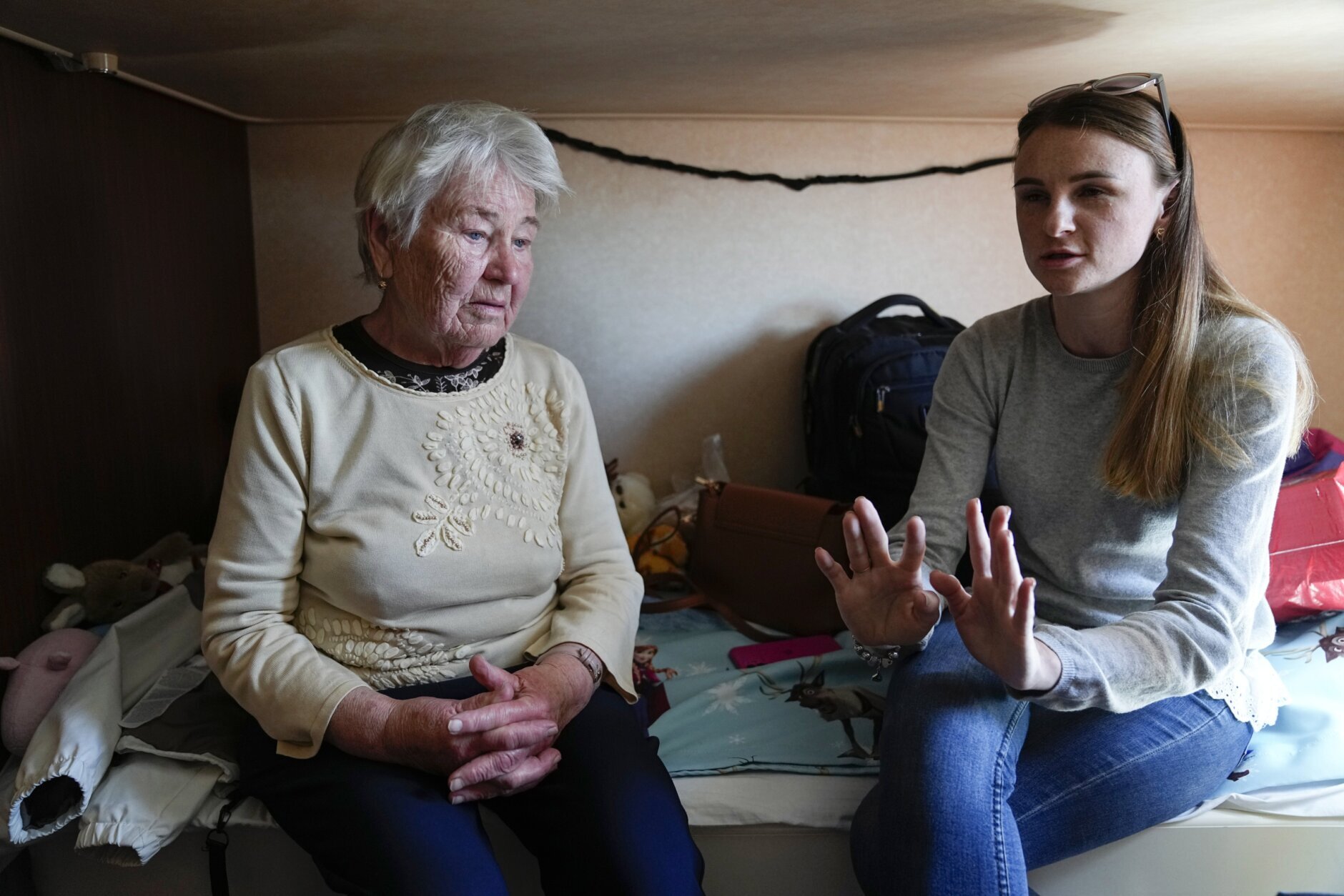
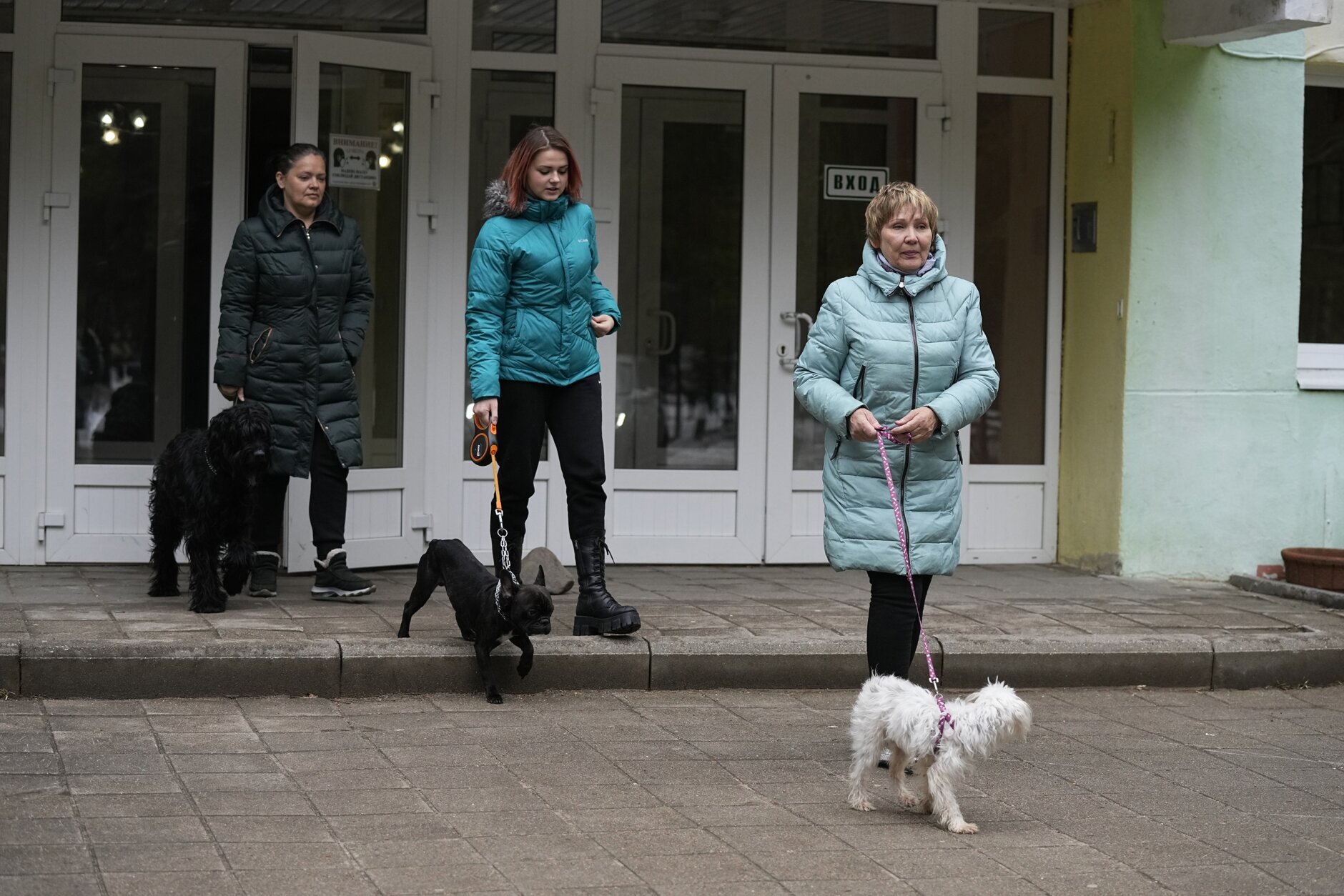
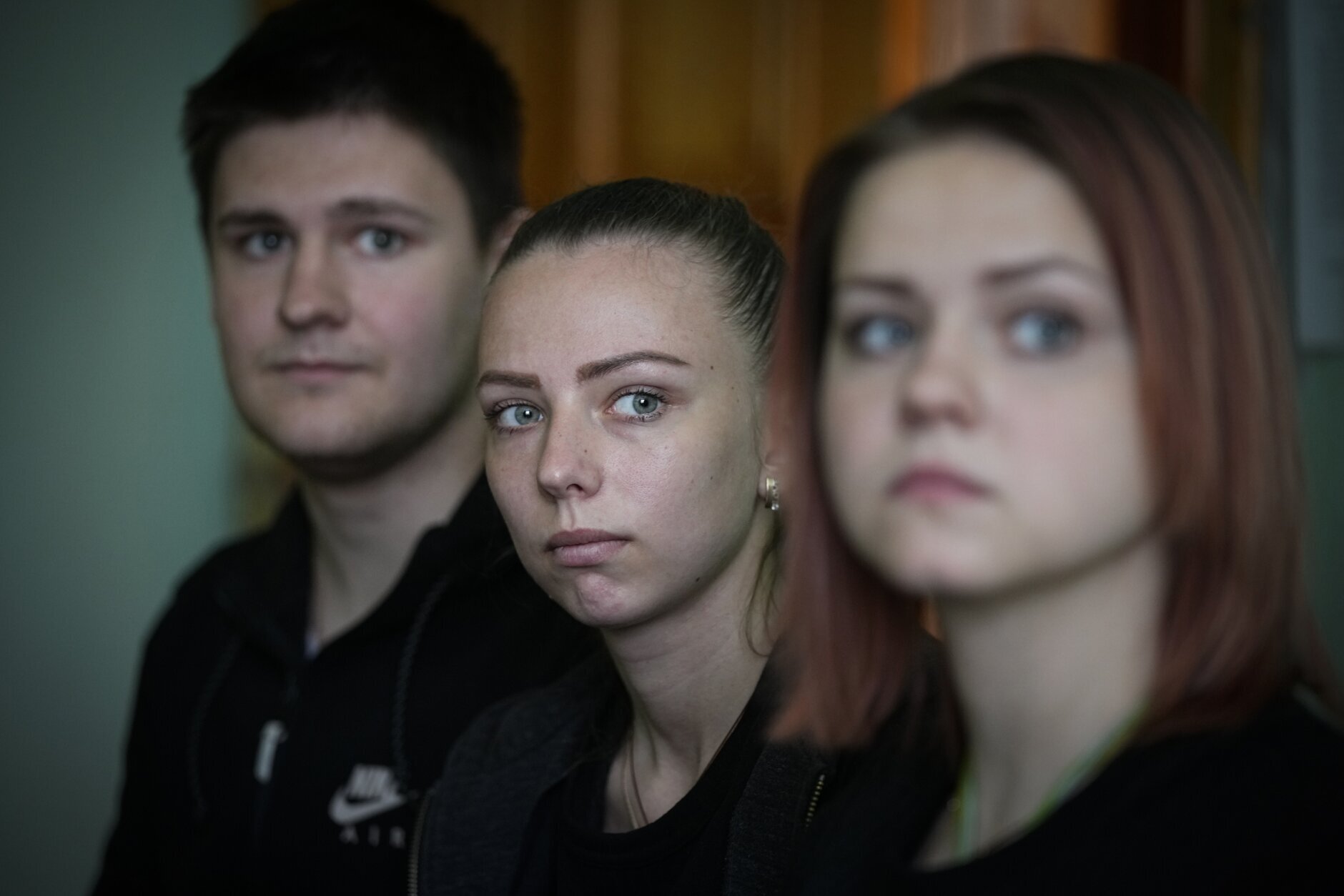
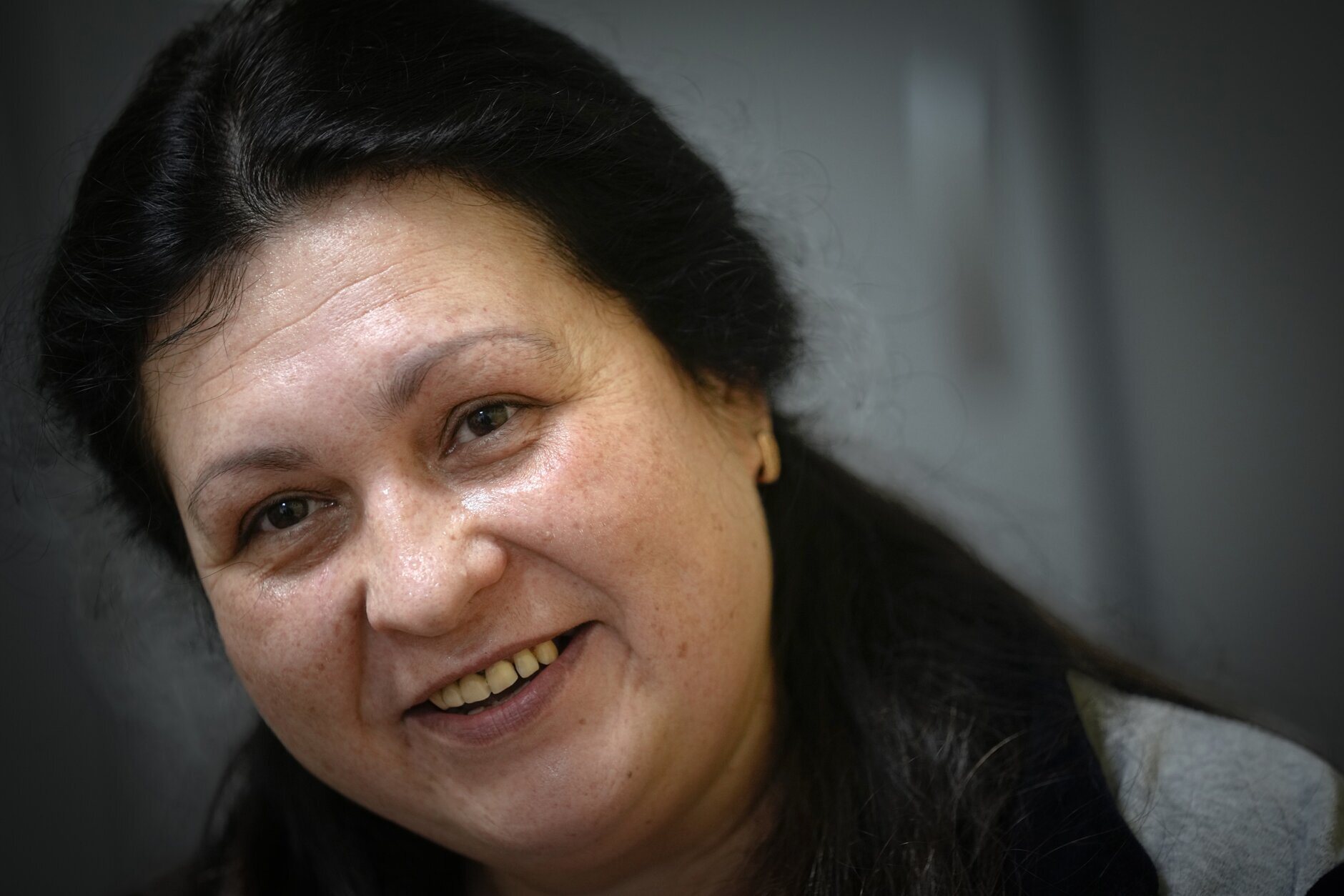
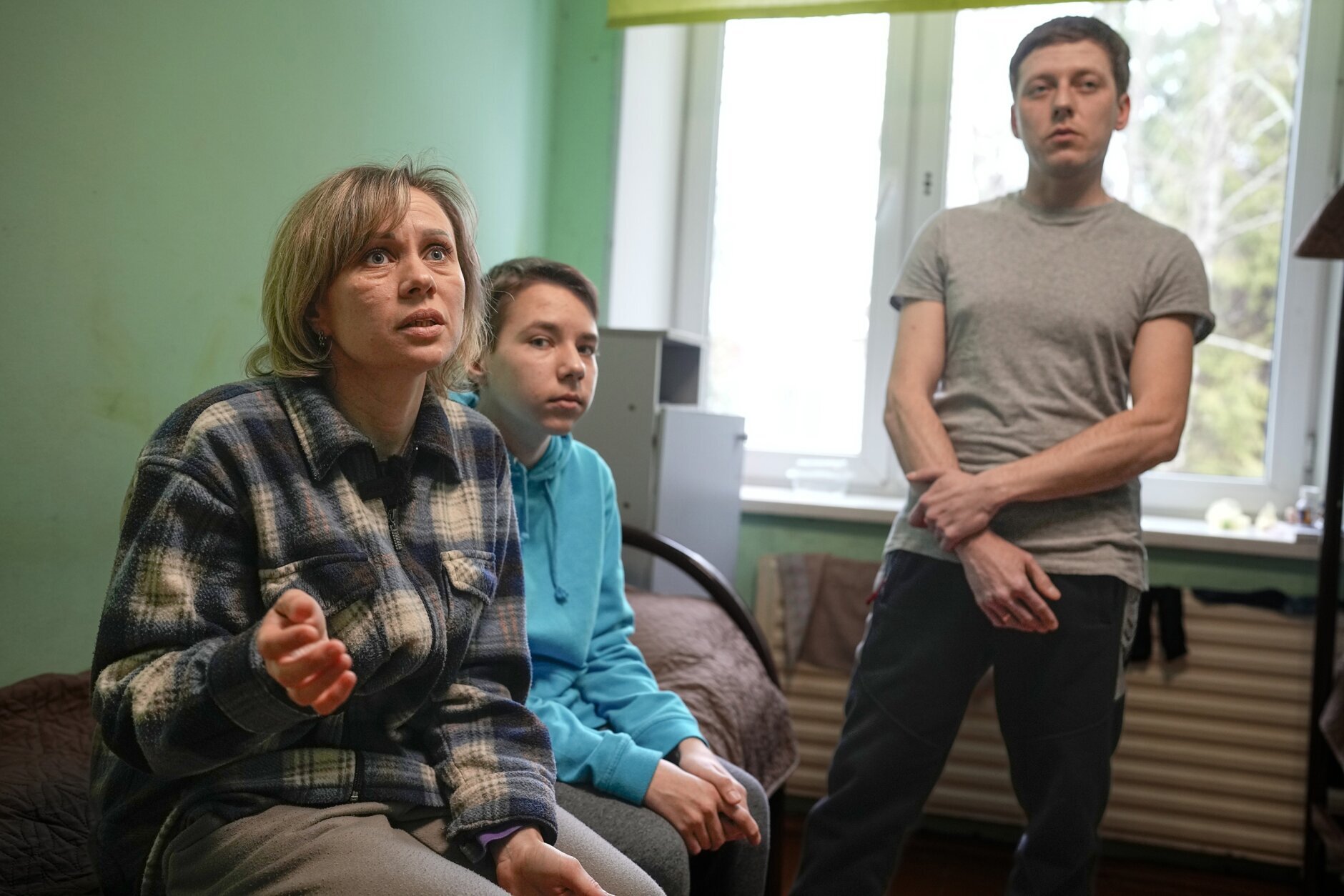
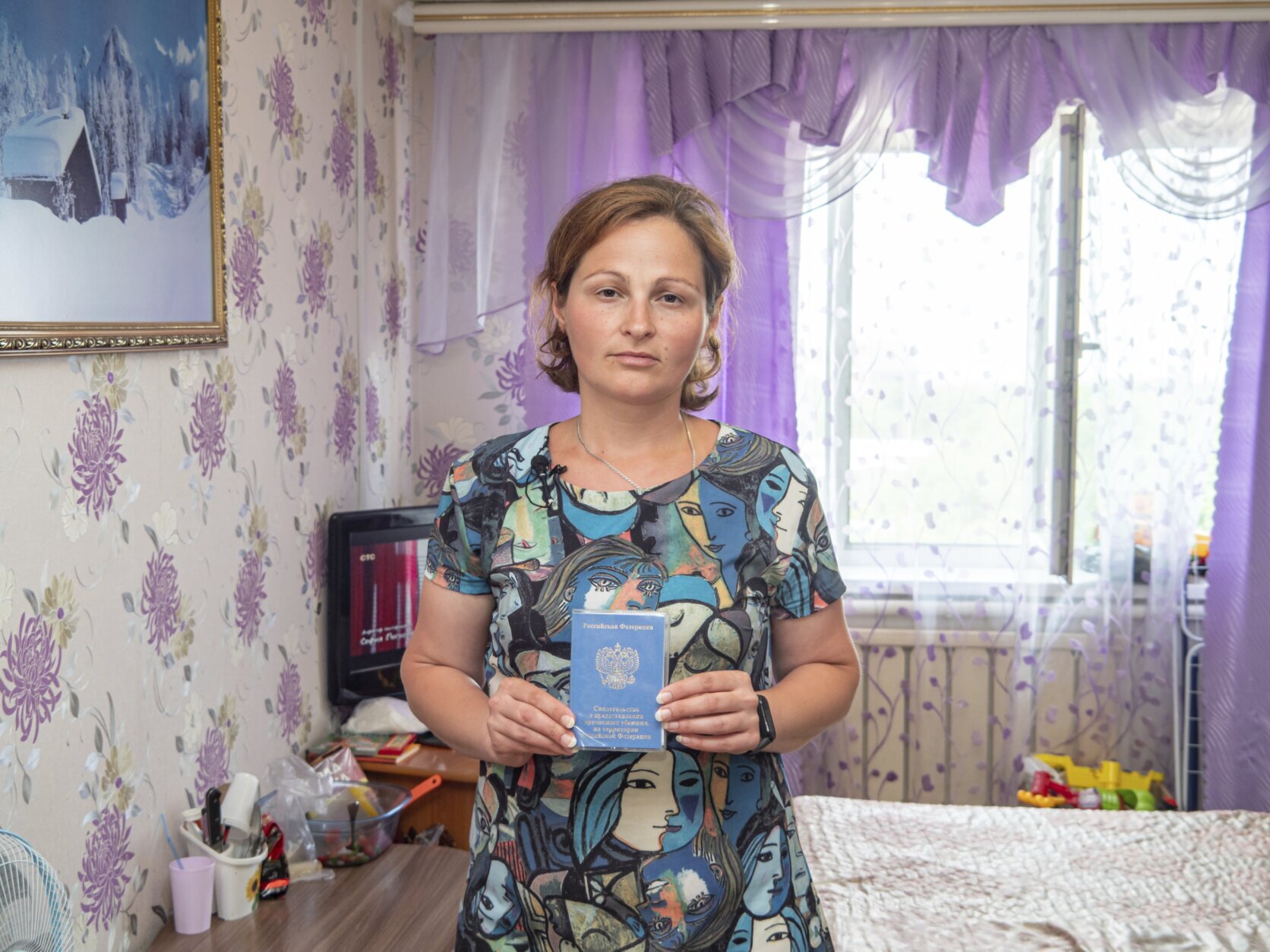
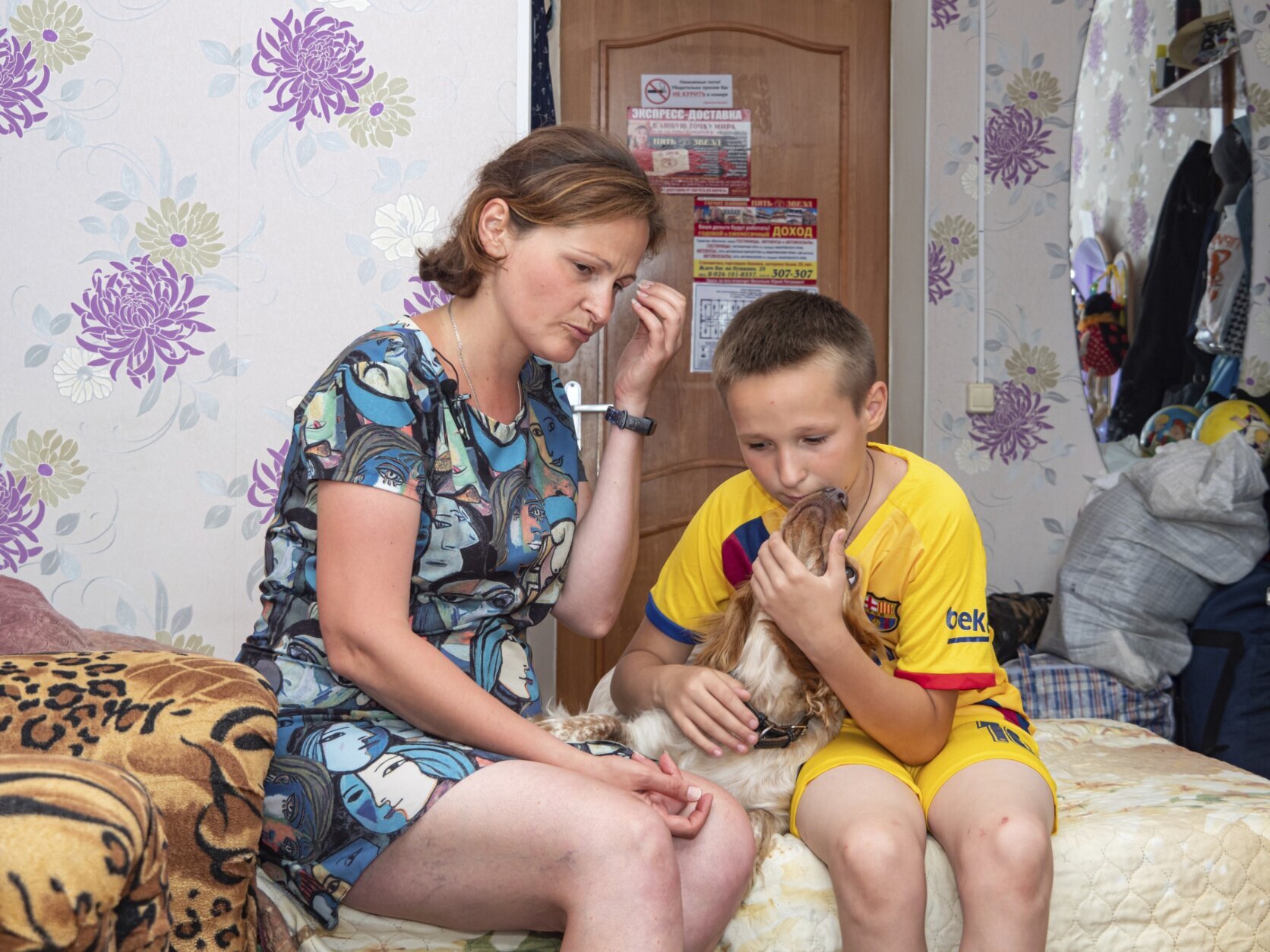
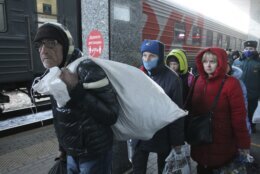
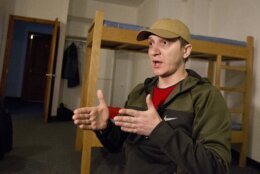
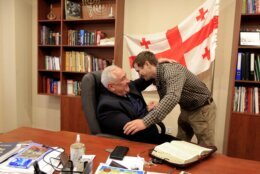
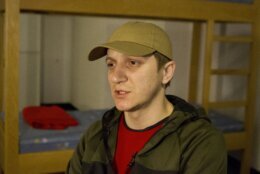

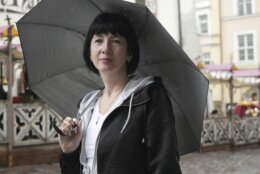
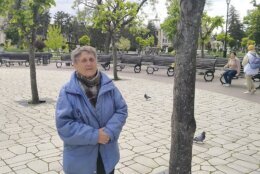

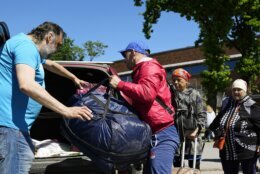
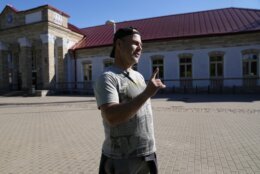
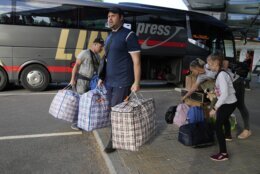

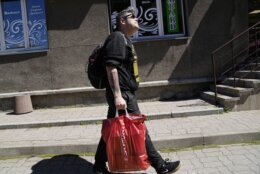
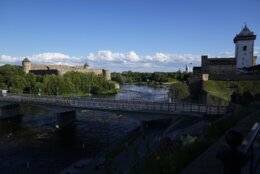


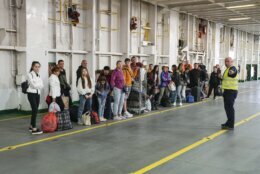
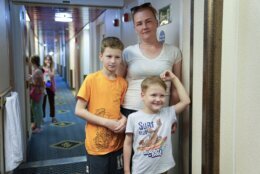

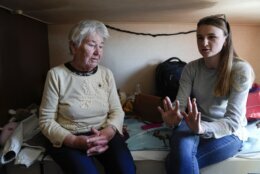
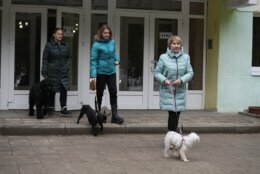
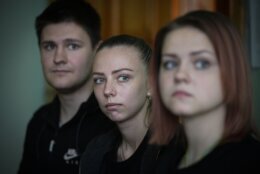
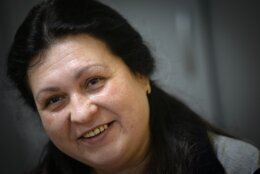
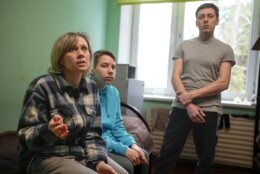
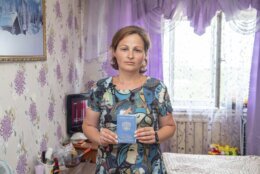
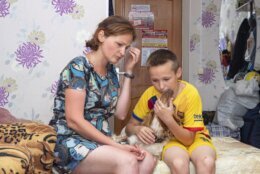
NARVA, Estonia (AP) — For weeks Natalya Zadoyanova had lost contact with her younger brother Dmitriy, who was trapped in the besieged Ukrainian port city of Mariupol.
Russian forces had bombed the orphanage where he worked, and he was huddling with dozens of others in the freezing basement of a building without doors and windows. When she next heard from him, he was in tears.
“I’m alive,” he told her. “I’m in Russia.”
Dmitriy Zadoyanov was facing the next chapter of devastation for the people of Mariupol and other occupied cities: Forcible transfers to Russia, the very nation that killed their neighbors and shelled their hometowns almost into oblivion.
Nearly 2 million Ukrainians refugees have been sent to Russia, according to both Ukrainian and Russian officials. Ukraine portrays these journeys as forced transfers to enemy soil, which is considered a war crime. Russia calls them humanitarian evacuations of war victims who already speak Russian and are grateful for a new home.
An Associated Press investigation based on dozens of interviews has found that while the picture is more nuanced than the Ukrainian government suggests, many refugees are indeed forced to embark on a surreal trip into Russia, subjected along the way to human rights abuses, stripped of documents and left confused and lost about where they are.
The abuses start not with a gun to the head, but with a poisoned choice: Die in Ukraine or live in Russia. Those who leave go through a series of what are known as filtration points, where treatment ranges from interrogation and strip searches to being yanked aside and never seen again. Refugees told the AP of an old woman who died in the cold, her body swollen, and an evacuee beaten so severely that her back was covered in bruises.
Those who “pass” the filtrations are invited to live in Russia, and often promised a payment of about 10,000 rubles ($170) that they may or may not get. Sometimes their Ukrainian passports are taken away, and the chance of Russian citizenship is offered instead. And sometimes, they are pressured to sign documents denouncing the Ukrainian government and military.
Those with no money or contacts in Russia — the majority, by most accounts — can only go where they are sent, eastward, even to the sub-Arctic. More than 1,000 are as far away as Khabarovsk and Vladivostok, a 10-day train journey to the edge of the Pacific Ocean, according to people the AP spoke with who saw multiple trains arrive over the weeks of the war.
However, the AP investigation also found signs of clear dissent within Russia to the government narrative that Ukrainians are being rescued from Nazis. Almost all the refugees the AP interviewed spoke gratefully about Russians who quietly helped them escape through a clandestine network, retrieving documents, finding shelter, buying train and bus fare, exchanging Ukrainian hryvnia for Russian rubles and even lugging the makeshift baggage that holds all that remains of their pre-war lives.
The investigation is the most extensive to date on the transfers, based on interviews with 36 Ukrainians mostly from Mariupol who left for Russia, including 11 still there and others in Estonia, Lithuania, Poland, Georgia, Ireland, Germany and Norway. The AP also drew on interviews with Russian underground volunteers, video footage, Russian legal documents and Russian state media.
The story of Zadoyanov, 32, is typical. Exhausted and hungry in the basement in Mariupol, he finally accepted the idea of evacuation. The Russians told him he could board a bus to either Zaporizhzhia in Ukraine or Rostov-on-Don in Russia.
They lied. The buses went only to Russia.
Along the way, Russian authorities searched his phone and interrogated him on why he was baptized and whether he had sexual feelings toward a boy in the camp. A man from Russian state television wanted to bring him to Moscow and pay him to denigrate the Ukrainians, an offer he declined. People with video cameras also asked arriving children to talk about how Ukraine was bombarding its own citizens.
“It was 100 percent a tactical pressure,” Zadoyanov said. “Why children? Because it is much easier to manipulate them.”
Then he, five children and four women were taken to the train station and told their destination would be Nizhny Novgorod, even deeper into Russia, 1,300 kilometers (800 miles) from the Ukrainian border. From the train, Zadoyanov called his sister Natalya in Poland. Her panic rose.
Get off the train, she told him. Now.
_____
A DELIBERATE STRATEGY
The transfer of hundreds of thousands of people from Ukraine is part of a deliberate and systemic strategy, laid out in Russian government documents.
An “emergency mass order” describes the “distribution” of 100,000 Ukrainians to some of the most remote and impoverished regions of Russia. None was to be sent to the capital, Moscow.
The AP verified through interviews with refugees, media reports and official statements that Ukrainians have received temporary accommodation in more than two dozen Russian cities and localities, and were even taken to an unused chemical plant in the Bashkortistan region, 150 kilometres (100 miles) from the nearest major town. One refugee, Bohdan Honcharov, told the AP that about 50 Ukrainians he traveled with were sent to Siberia, so far away that they effectively disappeared with little chance of escape.
A Ukrainian woman also said her elderly parents from Mariupol were sent to Russia and told to move to Vladivostok, at the other end of the country. Russian border authorities did not let her father out of Russia because he still had Soviet citizenship from the old times, along with Ukrainian residency documents.
Many Ukrainians stay in Russia because while they are technically free to leave, they have nowhere to go, no money, no documents or no way to cross the distances in a sprawling country twice the size of the United States. Some fear that if they return, Ukraine will prosecute them for going to the enemy — a fear encouraged by Russian officials.
Others speak Russian, with family there and ties that they feel are stronger even than their links to Ukraine. One woman told the AP that her husband was Russian and she felt more welcome in Russia.
Lyudmila Bolbad’s family walked out of Mariupol and ended up in Taganrog in Russia. The family speaks Russian, and the city of Khabarovsk, nearly 10,000 kilometers from Ukraine, was offering jobs, special payments for moving to the Far East and eventual Russian citizenship. With nothing left to lose, they took the 9-day train trip across some of the world’s most deserted territory to a city far closer to Japan than Ukraine.
Bolbad and her husband found work in a local factory, much as she was doing in the Azovstal steel mill back in Mariupol. Little else has gone as they’d hoped.
They handed over their Ukrainian passports in exchange for promises of Russian citizenship without hesitation, only to discover that landlords would not rent to Ukrainians without a valid identity document. The promised payments to buy a home are slow to come, and they are stranded with hundreds of others from Mariupol in a rundown hotel with barely edible food. But Bolbad plans to stay in Russia, and thinks Ukraine would label her a traitor if she went back.
“Now we are here … we’re trying to return to a normal life somehow, to encourage ourselves to start our life from scratch,” she said. “If you survived (the war), you deserve it and need to move forward, not stop.”
Russia’s reasons for deporting Ukrainians are not entirely clear, according to Oleksandra Matviichuk, the head of the Center for Civil Liberties in Ukraine. One goal appears to be to use the refugees in propaganda to sell Russians on the Ukraine war by pressuring them to testify against Ukraine.
“(Ukrainians in) the Russian Federation are extremely vulnerable,” she said. “Russia tries to use these people in a quasi-legal war against Ukraine to collect some testimonies from people who have no right to say no because they are afraid for their safety.”
The deportation of local civilians from occupied territories also clears the way for Russians to replace them with loyalists, as was the case in Crimea, Matviichuk said. And Russia may want Russian-speaking Ukrainians to populate its own isolated regions with depressed economies.
Ivan Zavrazhnov describes the terror of being in Russia and not knowing where he would wind up. A producer for a pro-Ukrainian television network in Mariupol, he made it through filtration only because officials never bothered to plug in his dead cell phone. He managed to escape, and ended up on the docked ferry Isabelle in the city of Tallinn in Estonia with about 2,000 other Ukrainians.
“This is some kind of incomprehensible lottery – who decides where and what,” he said. “You understand that you are going, as it were, into the mouth of a bear … an aggressor state, and you end up on this territory. … I did not have the feeling that I was safe in Russia.”
_____
STOPPED FOR FILTRATION
Refugees on the way to Russia are interrogated at multiple stops, in what both Russians and Ukrainians call “filtration.” Each time, some are weeded out.
They are fingerprinted and photographed, which the Ukrainian government calls the collection of biological information. Some are stripped of their clothing, and those with tattoos, wounds or bruises from munitions come under special scrutiny. Phones are confiscated and sometimes connected to computers, raising fears that tracking software is installed.
The Kovalevskiy family left Mariupol after eating cold scraps of food in an unlit basement and watching sores fester on their unwashed skin. At their first filtration, they held their breaths and thought fearfully of the photo and video the eldest daughter had transferred from her phone to a flash drive hidden among their belongings.
It never crossed her mind to delete her contacts. When a Russian soldier searched her phone, he stopped at the one listed as “Commander” and pulled her aside.
She explained that the “commander” was not a military connection but the head of the youth camp where she worked for two years. The explanation was satisfactory — this time. But they did not know how many more times they would be interrogated — Human Rights Watch has identified 14 filtration points in Ukrainian territory controlled by Russian forces.
The next stop was Vynohradne, named for its vineyards but now one of the mass grave sites established by Russia for Mariupol’s thousands of dead. The tent there was freezing and suffocatingly crowded, and the smell of rotting flesh clung to their nostrils. An old woman died overnight in the minus 9-degree (15 degrees Fahrenheit) temperatures, her body swelling.
The mother, Viktoria Kovalevska, peered outside to the tent next door and saw a wooden crate that a soldier had dropped to the ground. Inside were severed limbs.
Finally, the family reached the Russian city of Taganrog. When questioned by Russian officials about why they had left their hometown, the mother could no longer restrain herself.
“We did not leave; we were deported,” she replied testily. “We were loaded into cars by the military and taken away.”
Dozens of people from Mariupol were then given free train passage to two Russian cities: Volgograd, about 600 kilometers (370 miles) to the east, or Penza, twice as far.
“You go where you’re told,” they heard.
The Kovalevskiy family was among the lucky ones – they made it through the filtrations.
At an interrogation in Donetsk, a Mariupol policewoman was blindfolded and taken to Yolonevska, she told the AP. There, she saw military personnel and civilians taken for reasons that ranged from taking photographs of military equipment to running down the street in a panic. Some were beaten, and one woman’s back was covered with bruises. She heard others died.
She was blindfolded again, handcuffed and taken to the Rostov region in Russia. She asked where they were going. “Somewhere,” they said, and ordered her to be silent.
She was told that evacuees in Russia would be seen as traitors and get a prison term of 10 years if they returned to Ukraine. She was finally set free in a prisoner exchange, and found her way back to Ukraine anyway.
“They psychologically influence people,” she said. “Many of the detainees who are released are simply afraid to return to Ukraine after hearing such stories.”
___
IDENTITIES IN QUESTION
The Ukrainian refugees in Russia sometimes lose their identities along with their homes.
Some leave their Ukrainian documents behind. Others have their Ukrainian passports confiscated and are offered Russian citizenship or refugee status. Many end up in limbo without paperwork, and only 55,502 have received temporary asylum, according to Russia’s human rights ombudsman, Tatiana Moskalkova. The others have uncertain legal standing in a country where they are often seen as the enemy.
Along with giving up their own documents, Ukrainian refugees are sometimes pressured to sign papers holding the Ukrainian government or military responsible for the war.
Eighty-year-old Valentina Bondarenko still doesn’t know what she signed. When soldiers in white armbands burst into the Mariupol basement, she climbed out of the window, kicking over the cup holding her dentures.
She was taken with a few other elderly women on a bus through filtration in three Ukrainian towns, and then to Taganrog in Russia. Her next stop, she was told, would be Perm, 2,100 kilometers (1,300 miles) away.
There were only enough Ukrainian passengers that day to fill four of the train’s 10 cars. So the train was cancelled. She ended up in a town near the Georgia border that her family had never heard of, in a dormitory with 50 others from Mariupol.
She called her adult children still in Ukraine, coughing every few minutes. They were frantic. Increasingly distraught, Bondarenko asked migration officials how she could get out.
“There’s only one way open, which is to apply for Russian citizenship, submit an application, receive all the documents and when you get your passport you can go wherever you want,” they told her.
They asked everyone with Ukrainian passports to hand them over to start the process. So she did. Then came a residency application and a document that an official would not let her examine.
“There’s nothing to read here, and we’re running late,” he told her.
“What is written here?” Bondarenko persisted.
“Everything we talked about,” came the reply. She signed. Her passport was returned to her a few days later.
Many evacuees don’t realize they have the right to refuse to sign documents and the right to leave Russia, according to Tanya Lokshina, author of an upcoming Human Rights Watch report on forced deportations. HRW and the Ukrainian Center for Civil Liberties documented multiple cases where Ukrainians like Bondarenko were pressured into signing paperwork, including documents accusing Ukraine’s military of war crimes.
“When you are there and they have the power and you’re basically in their hands, you don’t know what’s going to happen,” Lokshina said. “So many people sign just because they are afraid.”
___
ANGELS WHO CAME FROM HEAVEN
For Ukrainians trying to escape, help often comes from an unexpected source: Russians.
On a recent day in Estonia, a Russian tattoo artist easily hefted the suitcases of a Mariupol family into the trunk of a waiting car. The matriarch sat in front, seemingly oblivious to the car’s Russian license plates or unsurprised at underground help from another Russian.
The tattoo artist, who asked that his name be withheld because he still lives in Russia, was the last in a chain of volunteers that stretched 1,900 kilometers (1,100 miles) from Taganrog and Rostov to Narva, the Estonian border town. He boards in St. Petersburg a couple of times a week to accompany refugees to Finland and sometimes Estonia. There is always at least one Ukrainian family that needs an extra pair of strong arms, if nothing else.
“They are disoriented. … You need to meet them at one station and take them to another station, because otherwise people get lost,” he said. “It’s clear they’re not psychologically equipped.”
He said Russians involved in helping Ukrainians leave know each other only through Telegram, nearly all keeping anonymous “because everyone is afraid of some kind of persecution.” Some of the loose groups are set up with chatbots to protect identities.
“I can’t stop it,” he said of the war and the forcible transfers of Ukrainians to Russia. “This is what I can do. … Shooting at people, this is normal in the 21st century, with old Soviet pieces of iron? This is utter nonsense.”
The volunteers face a slew of challenges. Those in Penza in Russia shut down their efforts because of anonymous threats that included slashed tires, the Russian symbol Z painted in white on a windshield and graffiti on doors and gates calling them the likes of “Ukro-Nazi” helpers.
Another Russian volunteer, who also communicated with The Associated Press on condition of anonymity, said they faced logistical and bureaucratic hurdles thrown up by the Russian government, such as travel documents lost or taken by administrators.
“They had organizational problems, but they created an amazing chain to help Ukrainian refugees,” she wrote in a message to AP.
Leaving Russia is still often dependent on luck and an official’s whims. Some Russian border guards let people through with just their Ukrainian national identity; others insist upon an international passport. In at least one case, a family wasn’t allowed to travel without a Russian passport. Armed men search the refugees in a final “filtration” and disembark a passenger or two.
For Zadoyanov, Bondarenko, Kovalevska and many others, the lifeline out of Russia was Russians.
After talking with his sister Natalya, Zadoyanov got off the train to Nizhny Novgorod. Natalya Zadoyanova found local people through church contacts inside Russia to take her brother and the others away from the station. They ended up at a church where they got food, shelter and eventually the first steps in finding a way out of Russia. Zadoyanov is now in the country of Georgia.
For Bondarenko, the elderly woman from Mariupol who signed unknown papers, her children in Ukraine found volunteers to help. One arrived at Bondarenko’s dormitory and demanded her release, saying the law protected a refugee’s freedom of movement. He took her to a hotel, with the room pre-paid for two nights. The third night, she stayed at the home he shared with his Ukrainian wife.
The couple bought her sneakers, clothes and food for the trip to come.
“We are against the war, against Putin,” they told her.
In St. Petersburg, another volunteer met her at the train, took her to his apartment for the night and helped her get to the bus station.
“At the Russian border, no matter what, do not tell them you want to return to Ukraine,” he warned her. “Say you are going to Estonia to visit family.”
It took about 90 minutes to pass the Russian side of the border. At one point, guards checked passports. Bondarenko’s noted Mariupol as her hometown, and they pulled her aside and asked what her destination was.
“I won’t lie. I want to return to Ukraine, to my children,” she answered, torn between defiance and fear. She was asked to wait and imagined the worst.
She didn’t know it, but she was already in Estonia. The guard returned with a giant smile and an even bigger box filled with food and water.
Bondarenko finally joined her children in the western Ukrainian city of Uzhhorod on May 20, having paid nothing for a 4,300-kilometer (2,600-mile) journey organized from start to finish by volunteers.
Viktoria Kovalevska persuaded a bus driver at a detention center in Russia to hide the family on board.
“We sat like mice. … I closed the curtains,” she said.
After about an hour, the driver said, “Let’s go.” When the family emerged from their hiding spot in Rostov, two taxis arrived for them and their bags. They were given hot soup and a way to finally wash their stained, charred clothes, and stayed up until 3 a.m. doing laundry.
Train tickets materialized to St. Petersburg, where other volunteers bought a suitcase to replace their fraying bags. Then it was a near-seamless trip to Estonia. Kovalevska warned her daughters to say nothing when they were roughly asked at the crossing why they wanted to leave Russia.
“You can get a bullet in the forehead and not tell the whole truth about what happened, or you can wait and later say everything as it was,” she told the girls.
The whole journey took four days.
Her memories of Mariupol are a nightmare — the torso of a woman in the street, her daughter stepping in human brains smeared on the ground, the hunger and cold that she feared would kill them more painfully than bombs. But her memories of Russia are laced with the unexpected, surreptitious kindness they received from Russian volunteers.
“I would love to say their names,” said Kovalevska, her face lighting up. “And I would tell them all, you are like angels who came from heaven and sheltered us with your wings. … Because there was no hope. None.”
___
Anastasiia Shvets and Elizaveta Telnaya contributed from Lviv, Ukraine. Oleksandr Stashevskyi and Inna Varenytsia contributed from Kyiv, Ukraine. Mstyslav Chernov contributed from Kharkiv, Ukraine. Sophiko Megrelidze contributed from Tblisi, Georgia. Cara Anna reported from Kviv and Sarah El Deeb reported from Beirut, Lebanon.
Copyright © 2024 The Associated Press. All rights reserved. This material may not be published, broadcast, written or redistributed.

